Top eBikes Around $1000 in 2025: Best Value Picks for Performance and Affordability
Electric bikes (eBikes) have transformed the way people commute and explore the outdoors, providing an efficient and eco-friendly alternative to traditional bikes and cars. In 2025, finding a high-quality eBike for around $1000 is easier than ever, with various models offering impressive performance, durability, and comfort. Here, we review some of the best budget-friendly eBikes, focusing on key features like battery capacity, motor power, suspension, and design to help you make an informed decision.
1. Bee Adventurer – High Performance at an Affordable Price
One of the top choices in the $1000 range is the Bee Adventurer, a full-suspension fat-tire mountain eBike designed for both rugged terrains and city streets. This model stands out with its 48V 21Ah battery, providing excellent range, and a 750W motor for powerful acceleration and hill-climbing capabilities.
Key Features:
Battery: 48V 21Ah, extended range for long rides
Motor: 750W high-performance motor
Suspension: Front and rear shock absorbers for a smooth ride
Tires: Fat tires for improved traction on various terrains
Price: $1199 (Spring Discount)
With its soft-tail design and dual suspension, the Bee Adventurer ensures a comfortable and controlled ride, making it an excellent choice for riders who need both power and comfort.
2. Bee Explorer – The Ultimate Soft-Tail Fat-Tire eBike
The Bee Explorer offers similar features to the Bee Adventurer but with a focus on improved riding stability and versatility. It is equipped with the same 750W motor and 48V 21Ah battery, ensuring long-lasting power for both urban commutes and off-road adventures.
Key Features:
Battery: 48V 21Ah, great mileage
Motor: 750W high-power performance
Suspension: Full-suspension for added comfort
Frame: Robust and durable for various riding conditions
Price: $1199
With its powerful motor and rugged build, the Bee Explorer is ideal for riders who enjoy trail riding and need a dependable eBike that can handle diverse environments.
3. Bee Pathfinder – A Compact Powerhouse with Adjustable Suspension
The Bee Pathfinder is a stylish and performance-oriented eBike featuring an internal 48V 20Ah battery and an adjustable hydraulic front fork. This eBike is designed to balance comfort and control, making it a great option for riders who want adaptability in different terrains.
Key Features:
Battery: 48V 20Ah, integrated design for sleek aesthetics
Motor: 750W for powerful acceleration
Suspension: Adjustable hydraulic front fork
Design: Compact yet durable frame
Price: $999 (Spring Sale)
With its affordable price and solid performance, the Bee Pathfinder is a fantastic choice for those who seek reliability and power in a compact design.
4. Bee Pathfinder Step-Thru – The Accessible and Stylish Choice
For those who prefer an easy-to-mount frame, the Bee Pathfinder Step-Thru delivers great performance while offering multiple color options and a stylish, accessible design. It shares the same 750W motor and 48V 20Ah battery as the Bee Pathfinder but features a low-step frame for easier accessibility.
Key Features:
Battery: 48V 20Ah, large capacity
Motor: 750W, high-performance motor
Frame: Step-thru design for easy mounting
Color Options: Available in multiple stylish colors
Price: Starts at $1199
This model is perfect for riders who prioritize convenience, comfort, and style while still wanting the power and range of a high-performance eBike.
5. Bee Blazer – A Mini eBike with Maximum Fun
If you’re looking for a compact and lightweight eBike, the Bee Blazer is an excellent choice. Designed for both teenagers and adults, this mini eBike offers a fun and agile riding experience at an unbeatable price.
Key Features:
Motor: 500W motor for urban commuting
Frame: Lightweight and compact
Design: Fun and easy to maneuver
Price: $599
With its portable and nimble design, the Bee Blazer is ideal for city riders and those looking for a budget-friendly eBike that’s simple yet effective.
6. Bee Tracer – Rugged and Durable for All-Terrain Adventures
The Bee Tracer is a rugged and durable eBike featuring a high-power motor, large battery, and a robust frame. It’s designed for riders who want a reliable and versatile eBike that can handle tough terrains.
Key Features:
Motor: 750W peak for powerful rides
Battery: Large capacity for extended range
Suspension: Double-shoulder front fork for added stability
Seat: Comfortable extended saddle for long rides
Price: $799
With its combination of affordability, durability, and high performance, the Bee Tracer is a perfect option for adventure seekers who need a tough and dependable eBike.
Final Thoughts: Which eBike Should You Choose?
Each of these eBikes offers unique advantages, making it essential to choose based on your personal preferences and riding needs:
For full-suspension performance and all-terrain capabilities, the Bee Adventurer or Bee Explorer are great choices at $1199.
For a balanced ride with an integrated battery and adjustable suspension, the Bee Pathfinder at $999 is a great deal.
For an easy-to-mount and stylish design, go with the Bee Pathfinder Step-Thru at $1199.
For a budget-friendly mini eBike, the Bee Blazer at $599 is an excellent pick.
For a rugged, adventure-ready model, the Bee Tracer at $799 is a top contender.
In 2025, high-quality eBikes around $1000 are more accessible than ever, offering powerful motors, long-lasting batteries, and impressive features. Whether you need an urban commuter, a trail conqueror, or a compact ride, there's an affordable option for everyone. Happy riding!
FAQs for best ebikes in 2025 around $1000:
What is the best eBike around $1000 in 2025?The best eBike around $1000 depends on your needs. The Bee Pathfinder ($999) is great for balanced performance, while the Bee Tracer ($799) offers rugged durability.
Which eBike has the longest battery life in this price range?The Bee Adventurer and Bee Explorer both have a 48V 21Ah battery, providing extended range for long rides.
Are these eBikes suitable for off-road riding?Yes! The Bee Adventurer, Bee Explorer, and Bee Tracer are designed for off-road adventures with fat tires and suspension systems.
Which eBike is best for city commuting?The Bee Pathfinder and Bee Pathfinder Step-Thru are great choices for urban commuting due to their integrated battery design and comfortable ride.
What’s the most affordable eBike on the list?The Bee Blazer is the cheapest option at just $599, offering a compact and lightweight design ideal for short city rides.
Are these eBikes good for beginners?Yes! Models like the Bee Pathfinder Step-Thru and Bee Blazer are particularly beginner-friendly due to their easy handling and accessibility.
Which eBike has the best suspension for a smooth ride?The Bee Adventurer and Bee Explorer feature full suspension (front and rear shocks) for maximum comfort on rough terrains.
Is the Bee Tracer a good choice for long-distance riding?Yes, with a large battery and comfortable long seat, the Bee Tracer is designed for extended rides.
Are these eBikes available in multiple colors?Yes! The Bee Pathfinder Step-Thru offers multiple stylish color options to suit different preferences.
Do these eBikes come with warranties?Most reputable eBike brands, including BeeCool Bikes, provide warranties on their products. Be sure to check the specific warranty details before purchasing.
How to Waterproof and Maintain Your Ebike for Longevity and Optimal Performance
Many reputable ebike brands, such as BeeCool Bikes, offer ebikes with impressive water and dust resistance ratings, typically ranging from IP54 to IP64. However, even with these ratings, regular waterproof maintenance is essential to extend the lifespan of your ebike and keep it performing at its best.
In this comprehensive guide, we will cover everything you need to know about waterproofing and maintaining your ebike, from understanding IP ratings to applying protective measures, routine maintenance, and storage tips.
1. Understanding Ebike IP Ratings and Water Resistance
Before diving into the waterproofing measures, it is essential to understand IP ratings and what they mean.
IP54: This rating indicates that the ebike is protected against limited dust ingress and splashing water from any direction. It is suitable for light rain but not for heavy downpours or full submersion.
IP64: This higher rating means the ebike is protected against total dust ingress and water splashing from any direction. It offers better protection against rain and wet conditions but still cannot withstand full immersion.
Key takeaway: Even with high IP ratings, ebikes are not fully waterproof. Prolonged exposure to rain or submersion in water can still cause damage.
2. Pre-Ride Waterproofing Tips
2.1. Apply Protective Coatings
Use water-repellent sprays on sensitive components, such as the battery connectors, motor casing, and display.
Silicone-based sprays can form a thin protective layer that prevents water from seeping into the electrical components.
2.2. Protect the Battery Compartment
Ensure that the battery casing is properly sealed. Inspect the rubber gaskets or seals around the battery for wear and tear.
Apply dielectric grease to battery terminals to prevent moisture buildup and corrosion.
2.3. Use Waterproof Covers
Invest in waterproof handlebar covers and protective cases for displays and controllers.
Use mudguards and fenders to prevent water from splashing onto vulnerable parts of the ebike.
3. Post-Ride Waterproof Maintenance
3.1. Clean and Dry the Ebike Thoroughly
Use a soft cloth or sponge with mild soap to wipe off dirt and moisture.
Avoid using high-pressure water jets, as they can force water into the motor or electrical components.
Dry the bike thoroughly with a microfiber towel.
3.2. Lubricate Moving Parts
Water exposure can wash away lubrication from the chain, derailleur, and cassette. After cleaning, apply a water-resistant chain lubricant.
Wipe off any excess lubricant to prevent dirt buildup.
3.3. Inspect and Tighten Connections
Check all electrical connectors, including display wires, brake sensors, and motor cables, for moisture.
Use compressed air to blow out any trapped water in the connectors.
4. Long-Term Waterproofing Strategies
4.1. Seal Vulnerable Entry Points
Use silicone sealant or waterproof tape to seal gaps around connectors, battery ports, and wiring entry points.
Apply heat-shrink tubing over exposed wire connections to provide extra protection.
4.2. Upgrade to Waterproof Components
If your ebike has a lower IP rating, consider upgrading to IP67-rated connectors and water-resistant displays.
Install waterproof motor covers to protect against splashes and rain.
5. Waterproofing Accessories and Gear
5.1. Waterproof Bags and Panniers
Use waterproof saddlebags or frame bags to protect your belongings during rainy rides.
Choose bags made from PVC-coated fabrics with sealed zippers for maximum protection.
5.2. Ebike Covers for Storage
When storing your ebike outdoors, use a heavy-duty waterproof cover.
Ensure the cover is breathable to prevent moisture buildup, which can lead to rust.
6. Ebike Storage and Care in Wet Conditions
6.1. Indoor Storage
Whenever possible, store your ebike indoors or in a covered, dry area.
If storing in a garage or shed, use a dehumidifier or silica gel packs to reduce humidity levels.
6.2. Outdoor Storage Precautions
If outdoor storage is unavoidable, use a waterproof tarp or specialized ebike cover.
Elevate the bike slightly off the ground to prevent water pooling around the wheels.
6.3. Battery Care During Storage
Remove the battery when storing the bike for an extended period.
Store the battery in a cool, dry place with a charge level of around 50-70% to prevent over-discharge.
7. Tips for Riding in Wet Conditions
7.1. Avoid Deep Water and Puddles
Even with high IP ratings, avoid riding through deep water or puddles, as water can seep into the motor and cause damage.
7.2. Use Lower Assist Levels
In wet conditions, reduce the assist level to minimize strain on the motor and prevent overheating.
7.3. Increase Braking Distance
Wet roads reduce tire traction. Brake earlier and more gradually to prevent skidding.
8. Conclusion
While modern ebikes, such as BeeCool Bikes, offer reliable water resistance, regular waterproof maintenance is key to preserving their longevity and performance. By applying protective coatings, sealing entry points, and practicing proper cleaning and storage techniques, you can confidently ride your ebike in various weather conditions without compromising its durability.
Investing in waterproof accessories and following these maintenance tips will ensure that your ebike continues to perform optimally, even when faced with rain and wet conditions. With proper care, your ebike will remain a dependable and efficient mode of transportation for years to come.
10 FAQs About Waterproofing and Maintaining Your Ebike
Q: Are ebikes completely waterproof?A: No, most ebikes are water-resistant but not fully waterproof. Even models with high IP ratings, like IP64, can withstand splashes and rain but should not be submerged in water.
Q: Can I ride my ebike in the rain?A: Yes, you can ride your ebike in light to moderate rain if it has an adequate IP rating (IP54 or higher). However, avoid riding through deep puddles or heavy downpours to prevent water damage.
Q: How should I clean my ebike after riding in wet conditions?A: Use a damp cloth or sponge with mild soap to wipe off dirt and moisture. Avoid using high-pressure water jets, and dry the bike thoroughly with a microfiber towel afterward.
Q: Do I need to lubricate my ebike after riding in the rain?A: Yes, water exposure can wash away lubrication. Apply a water-resistant chain lubricant to prevent rust and ensure smooth performance.
Q: How can I protect the battery from water damage?A: Ensure the battery compartment is properly sealed. Apply dielectric grease to the battery terminals and use waterproof covers during wet rides.
Q: What accessories can help waterproof my ebike?A: Waterproof handlebar covers, display cases, mudguards, and fenders can protect your ebike from rain and splashes. Use a waterproof cover when storing your bike outdoors.
Q: How do I know if my ebike’s seals and connectors are still effective?A: Regularly inspect rubber gaskets, battery seals, and connectors for cracks or wear. Apply silicone sealant or replace damaged parts to maintain water resistance.
Q: Can I store my ebike outside in rainy weather?A: It’s best to store your ebike indoors. If outdoor storage is unavoidable, use a breathable, waterproof cover and elevate the bike slightly off the ground to prevent water pooling.
Q: How often should I perform waterproof maintenance on my ebike?A: Inspect and maintain your ebike monthly if you ride in wet conditions frequently. Clean and dry it thoroughly after each rainy ride.
Q: What should I do if water gets into the motor or electrical system?A: Stop using the ebike immediately. Disconnect the battery, dry the bike, and let it sit in a dry, ventilated area. If the problem persists, consult a professional technician.
Epic Spring eBike Ride: Pacific Coast Highway Route from Monterey to San Simeon, California
The Ultimate eBike Adventure in California
Spring is the perfect time for eBike enthusiasts to explore California’s breathtaking Pacific Coast Highway (PCH). This scenic route, stretching from Monterey to San Simeon, offers stunning ocean views, rugged cliffs, charming coastal towns, and unforgettable wildlife encounters. The 94-mile ride can be comfortably completed in two to three days, making it ideal for a spring getaway.
In this guide, you’ll find a detailed itinerary, route planning tips, and recommendations for stops, accommodations, and dining, ensuring an unforgettable and safe eBike adventure.
Route Overview: Monterey to San Simeon
Distance: 94 miles (151 km)
Duration: 2-3 days
Difficulty: Moderate
Best for: Scenic coastal rides, wildlife spotting, and outdoor enthusiasts
eBike Tip: Ensure your eBike has at least 40-60 miles of range per charge or plan for charging stops.
Day 1: Monterey → Big Sur
Distance: 30 miles (48 km)
Estimated Time: 4-5 hours (including stops)
Route Details:
Start Point: Monterey Bay Coastal Recreation Trail – Begin your journey along this popular bike path. It offers smooth, paved trails with stunning views of Monterey Bay.
Highway 1 South: After 6 miles, you’ll merge onto Highway 1. eBikes are allowed on this stretch, and the wide shoulders make it a safe and scenic ride.
Point Lobos State Natural Reserve: After about 10 miles, stop at this reserve for hiking and wildlife viewing. Expect to see sea otters, seals, and a variety of seabirds.
Lunch Stop:
Big Sur Roadhouse (Mile 27) – Known for its farm-to-table cuisine, this cozy restaurant offers delicious local dishes. Try the fresh catch of the day or a veggie-packed sandwich.
Accommodation Recommendation:
Big Sur River Inn – A charming riverside lodge offering cozy rooms and scenic views, perfect for a relaxing evening after a day of riding.
Day 2: Big Sur → Ragged Point
Distance: 35 miles (56 km)
Estimated Time: 5-6 hours (including stops)
Route Details:
Bixby Creek Bridge: About 10 miles from Big Sur, you’ll reach the iconic Bixby Bridge. Take a break here for photos of the spectacular coastline.
Julia Pfeiffer Burns State Park: After another 15 miles, stop at this park to witness McWay Falls, an 80-foot waterfall plunging into the Pacific Ocean.
Coastal Views: The ride from here offers dramatic cliffside scenery with occasional rest areas for taking in the views.
Lunch Stop:
Nepenthe Restaurant – Famous for its sweeping ocean views, this iconic spot offers gourmet burgers, salads, and refreshing drinks.
Accommodation Recommendation:
Ragged Point Inn and Resort – Known as the “Gateway to Big Sur,” this cliffside resort offers comfortable rooms and an excellent restaurant. Enjoy sunset views over the Pacific.
Day 3: Ragged Point → San Simeon
Distance: 29 miles (47 km)
Estimated Time: 4-5 hours (including stops)
Route Details:
Hearst Castle: About 10 miles before San Simeon, you’ll spot Hearst Castle, a historic mansion with extravagant architecture. You can book a guided tour or admire the estate from afar.
Elephant Seal Rookery: Just before reaching San Simeon, stop at the Piedras Blancas Elephant Seal Rookery. During spring, you’ll witness hundreds of seals basking on the beach.
Lunch & Finish:
Sebastian’s Café – Located in San Simeon, this café offers hearty sandwiches and locally sourced wine, perfect for celebrating the end of your ride.
Accommodation Recommendation:
Cavalier Oceanfront Resort – Situated by the beach, this resort offers luxurious amenities and direct beach access, ideal for a relaxing evening after your eBike adventure.
Gear and Safety Tips for Spring eBike Riding
Battery Range: Since this is a multi-day ride, bring a spare battery or plan for charging stops at inns or cafes.
Helmet and Safety Gear: Always wear a helmet and consider reflective clothing for visibility.
Weather Considerations: Spring weather along the California coast can be unpredictable. Pack layers and rain gear.
Navigation Tools: Use GPS apps like Komoot or Ride with GPS for accurate navigation.
Charging Options: Call ahead to confirm that your accommodations offer eBike charging facilities.
Why This Route Is Perfect for Spring
Mild temperatures: Spring offers pleasant weather with daytime highs of 60-70°F (15-21°C), ideal for cycling.
Wildflower blooms: The coastal hills and meadows are adorned with vibrant wildflowers, creating a picturesque backdrop.
Lighter traffic: Compared to the summer months, spring has fewer tourists, making the ride more enjoyable.
Conclusion: An Unforgettable Spring eBike Adventure
The Pacific Coast Highway from Monterey to San Simeon offers eBike riders a once-in-a-lifetime adventure. With dramatic coastal cliffs, charming towns, and wildlife encounters, this route is perfect for spring exploration. Whether you’re a seasoned eBiker or a casual rider, this journey promises spectacular scenery, thrilling rides, and unforgettable memories. So, charge up your eBike, pack your gear, and hit the road for an epic California spring ride!
FAQ: Spring eBike Ride from Monterey to San Simeon
1. How long does the entire ride from Monterey to San Simeon take?
The full route is approximately 94 miles (151 km) and typically takes 2-3 days to complete, depending on your pace and the number of stops you make.
2. What is the best time to ride this route in spring?
The ideal months for this ride are March to May, offering mild temperatures (60-70°F / 15-21°C) and beautiful wildflower blooms along the coast.
3. Is the route suitable for beginner eBike riders?
Yes, but it requires moderate fitness. The route has some hilly sections, so ensure your eBike has enough power and range. Plan for regular breaks and charging stops.
4. Are there charging stations along the route?
Many cafes, restaurants, and accommodations offer eBike charging options. It’s recommended to call ahead to confirm charging availability.
5. What type of eBike is recommended for this ride?
A touring or hybrid eBike with a range of at least 40-60 miles per charge is ideal. Make sure it has reliable brakes and appropriate tires for paved roads.
6. What safety gear should I bring?
A certified bike helmet
Reflective clothing for visibility
Bike lights for foggy or low-light conditions
Basic repair kit and spare inner tube
7. Are there food and lodging options along the route?
Yes, there are several restaurants, cafes, and inns along the way. Suggested stops include:
Big Sur Roadhouse (Day 1 lunch)
Nepenthe Restaurant (Day 2 lunch)
Accommodations like Big Sur River Inn, Ragged Point Inn, and Cavalier Oceanfront Resort.
8. What wildlife can I expect to see?
During spring, you may encounter:
Sea otters, seals, and seabirds at Point Lobos Reserve
Elephant seals at Piedras Blancas Rookery
Occasional sightings of whales off the coast
9. What should I pack for the ride?
Layers of clothing (spring weather can be unpredictable)
Rain jacket and windbreaker
Snacks and water bottles
Phone with GPS navigation app
10. Is the Pacific Coast Highway safe for eBikes?
Yes, but you should exercise caution. The highway has wide shoulders, but there are sections with sharp turns and narrow roads. Ride defensively and use reflective gear for visibility.


 United States
United States


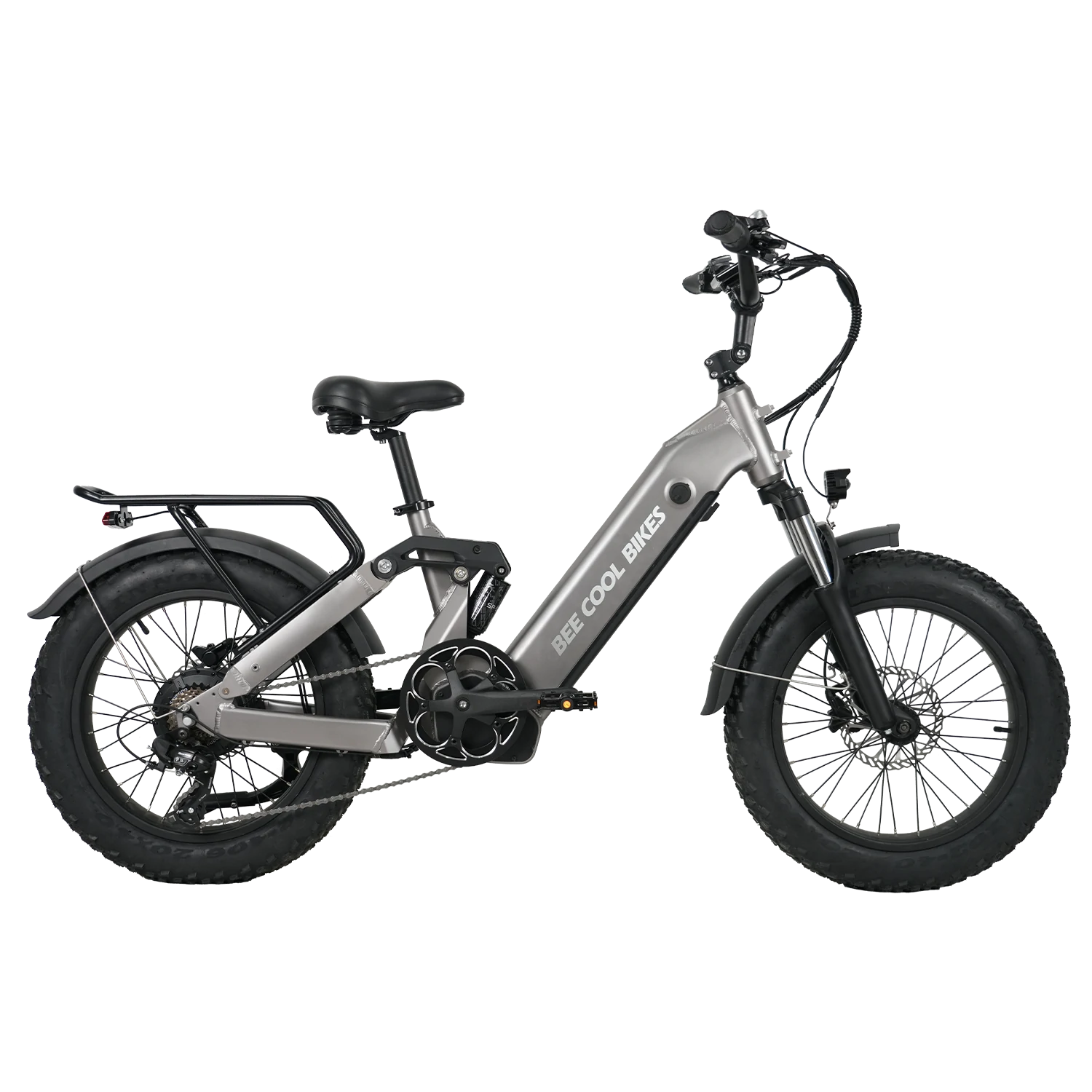
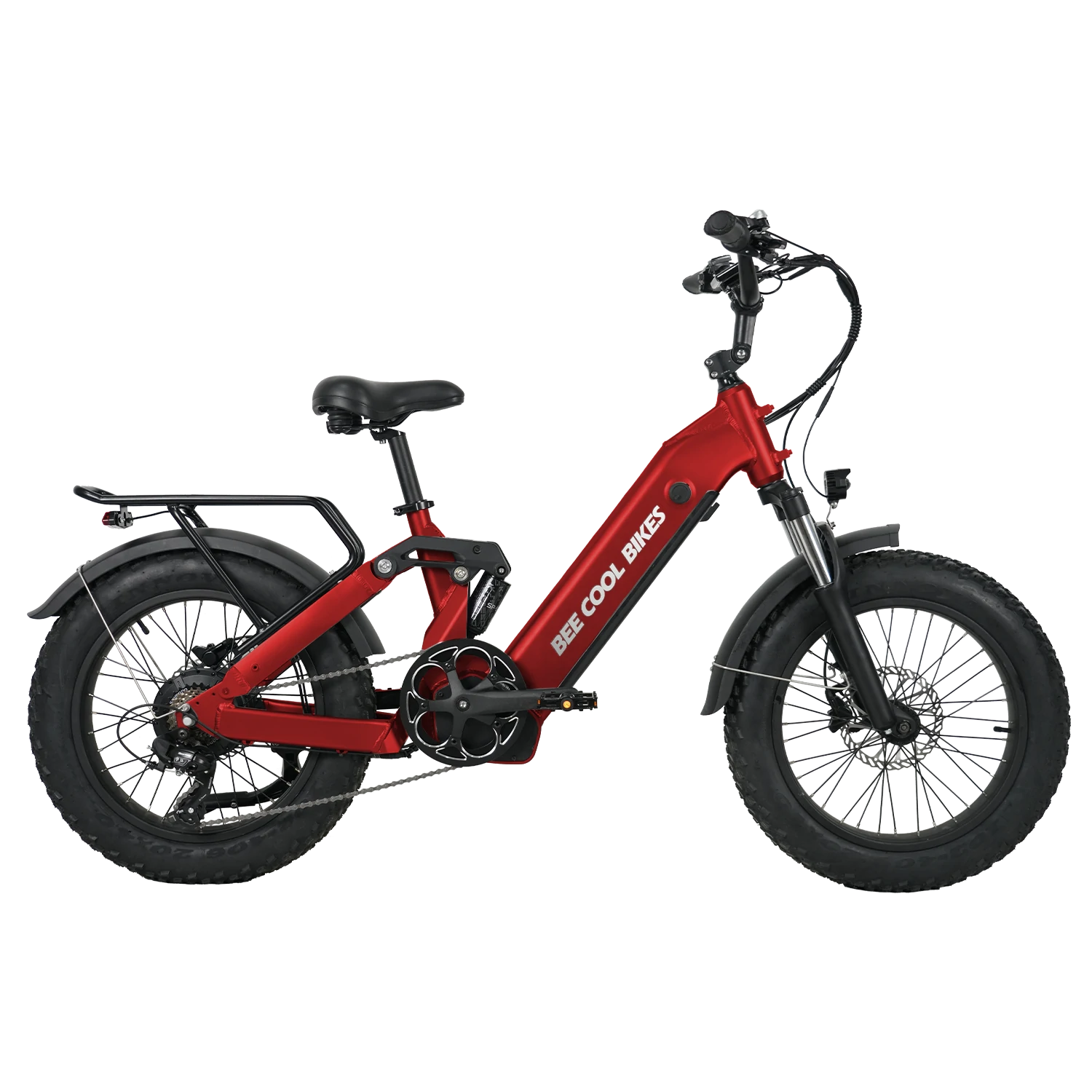
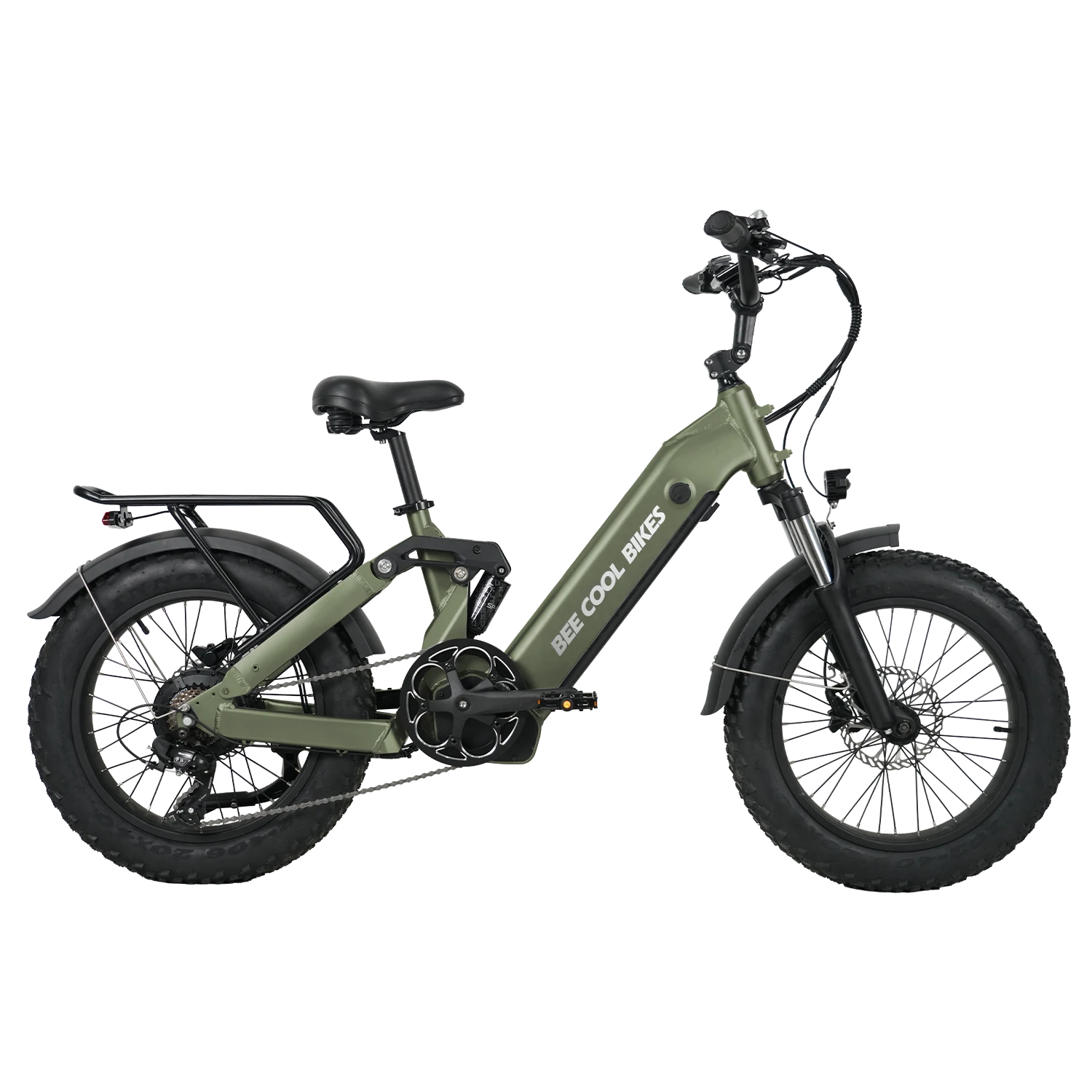

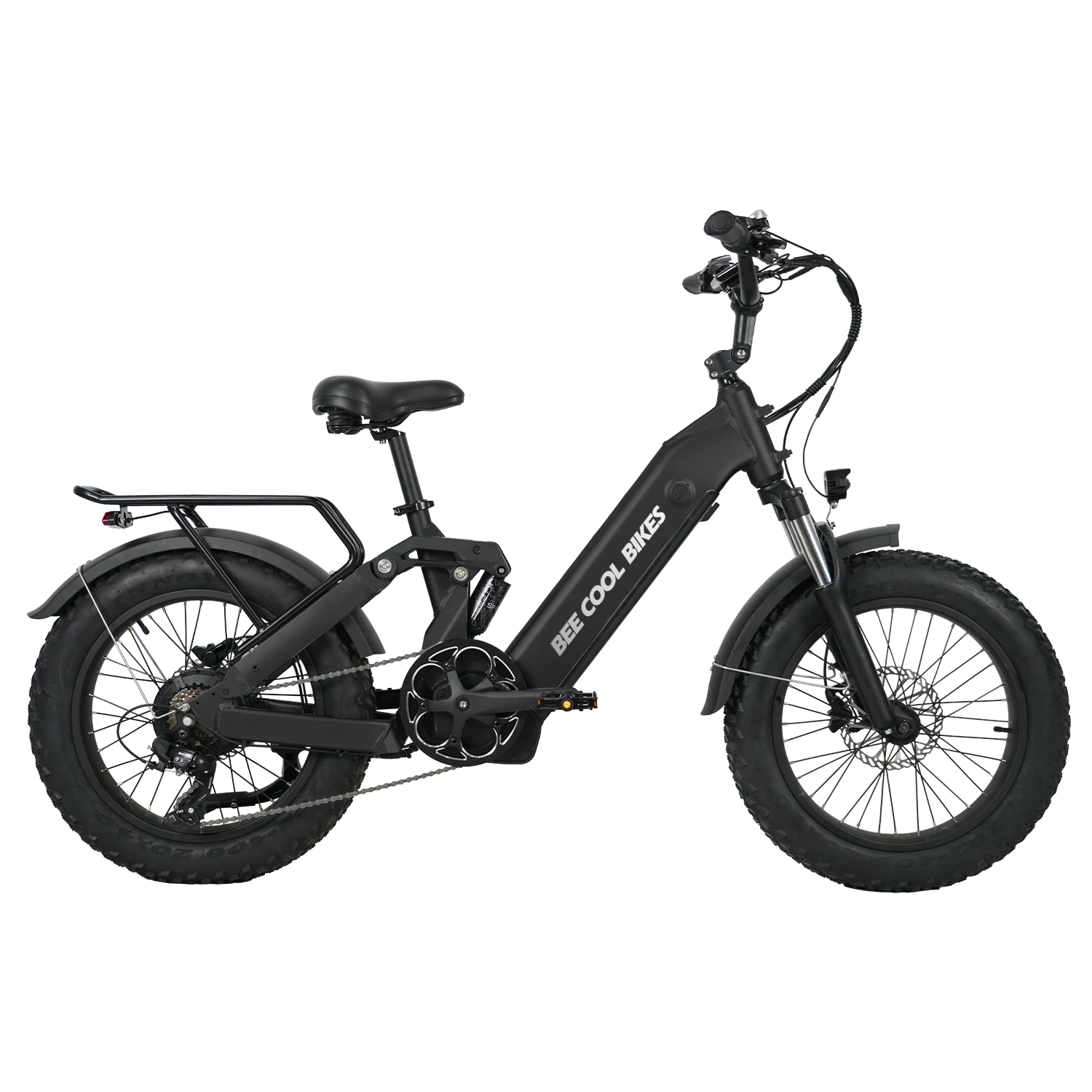





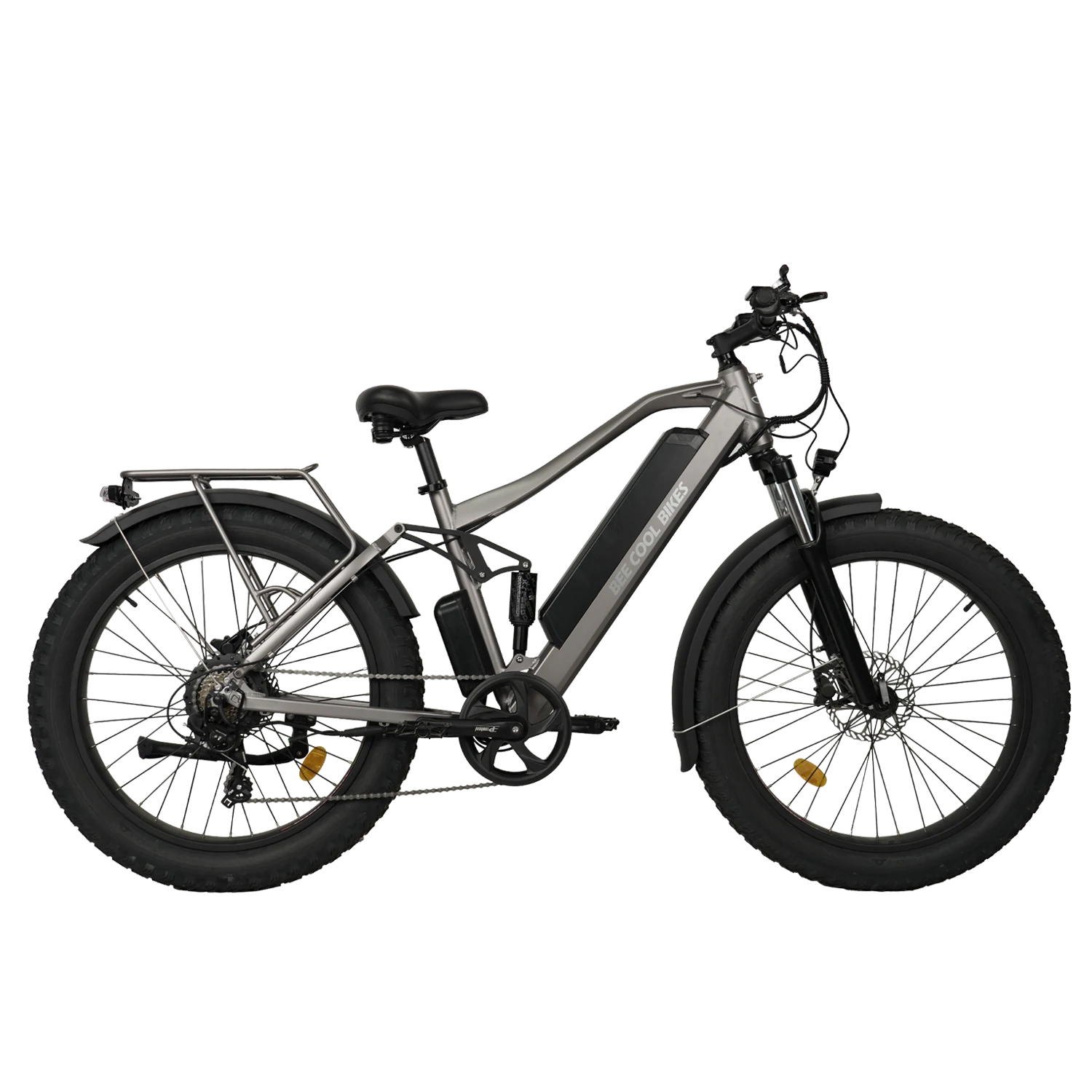
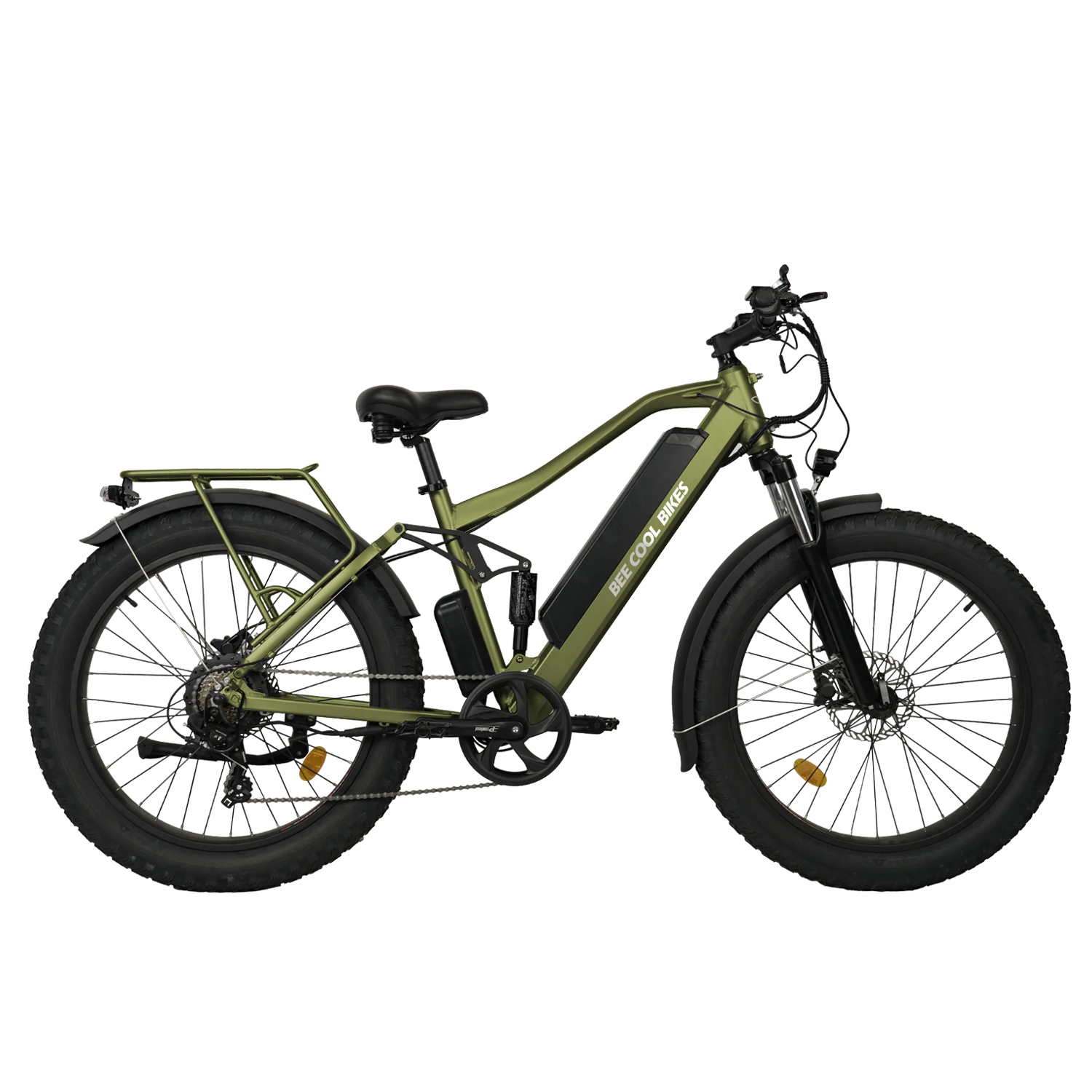
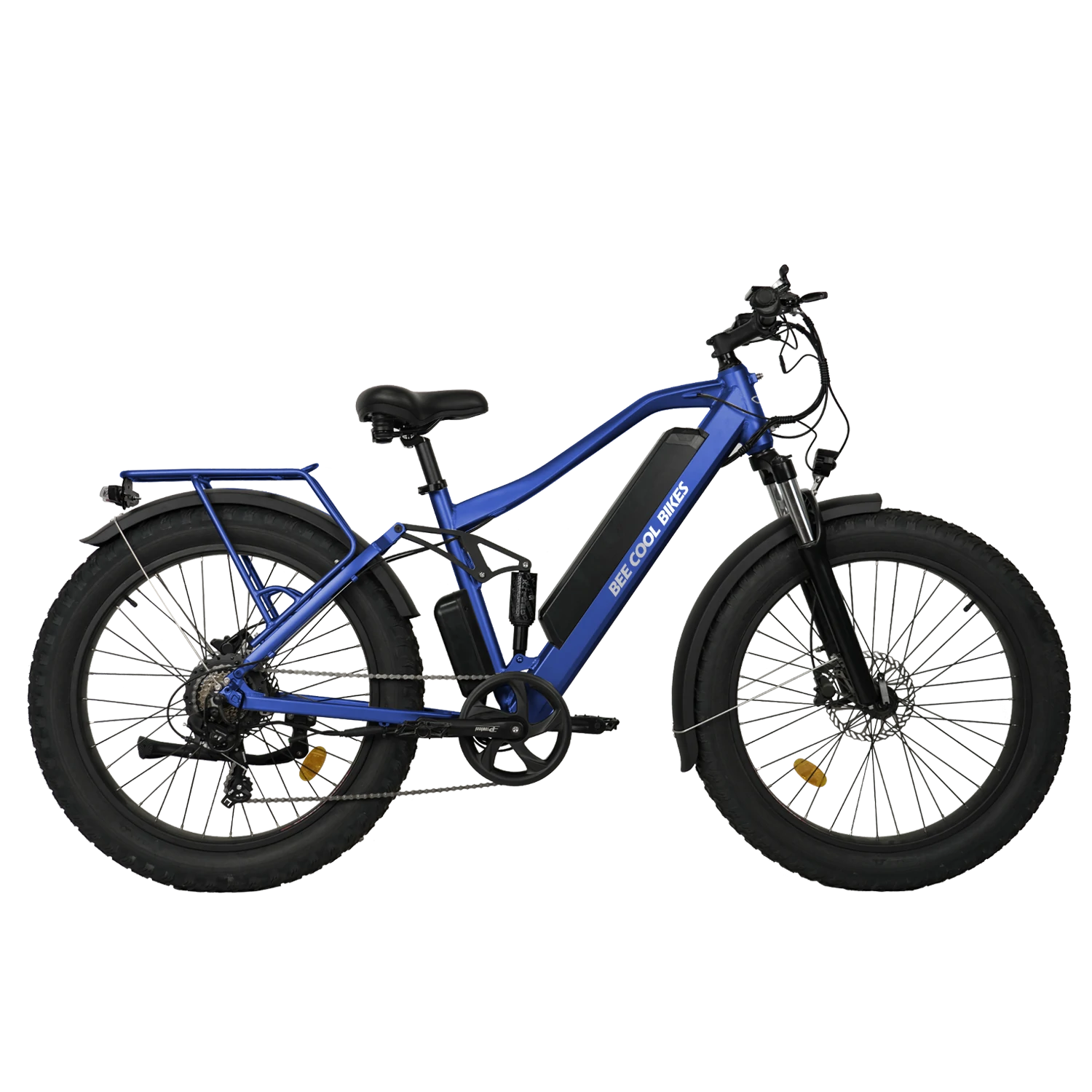
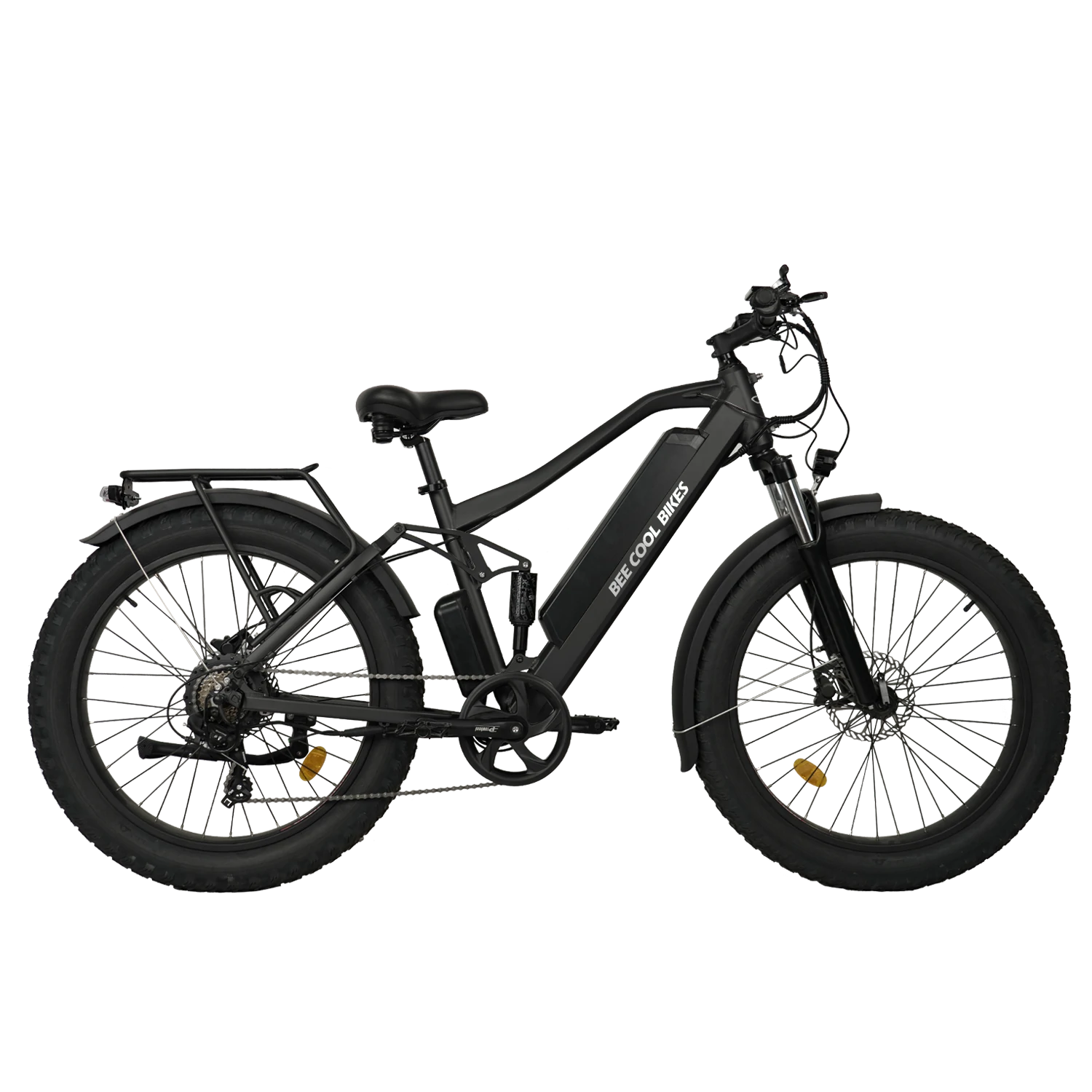
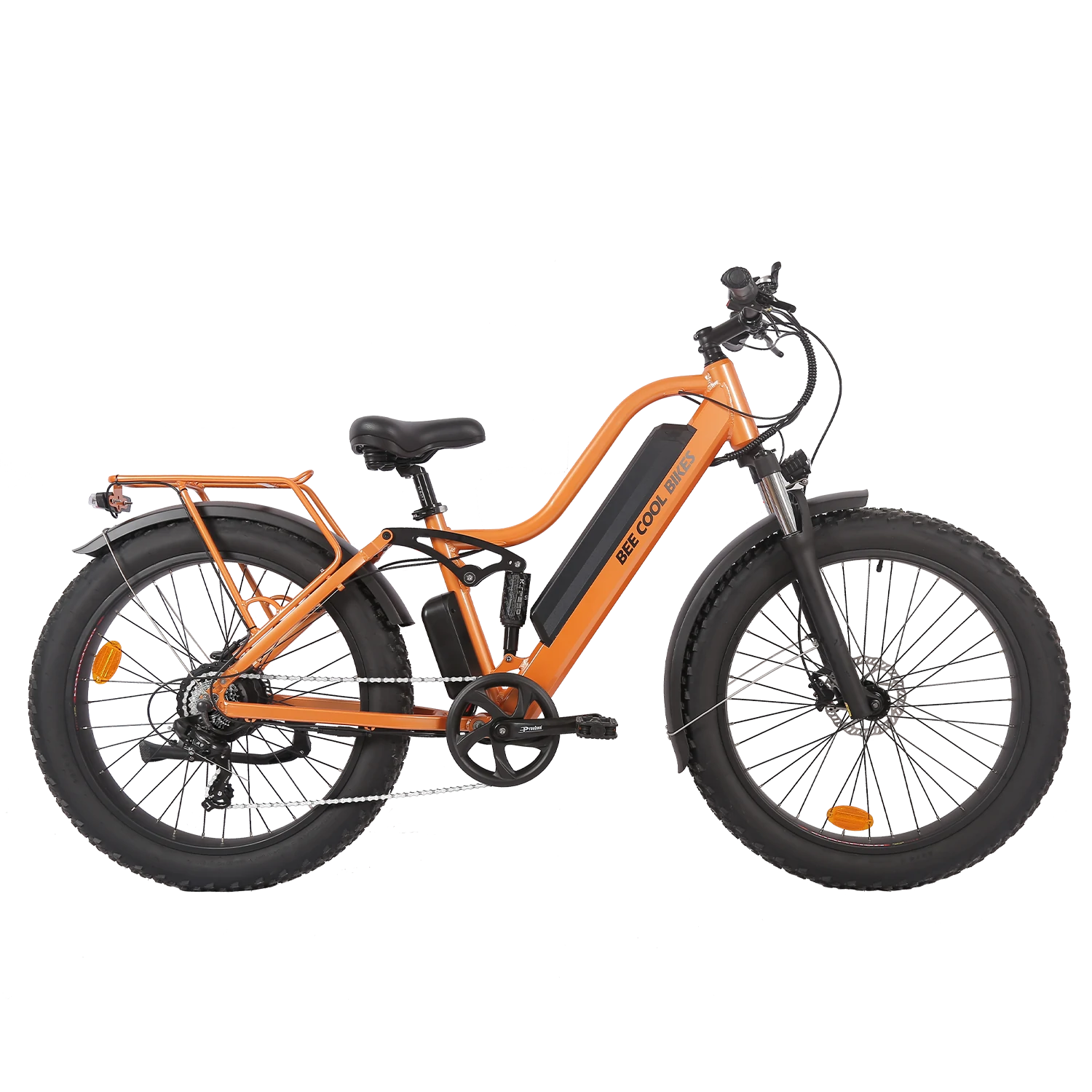
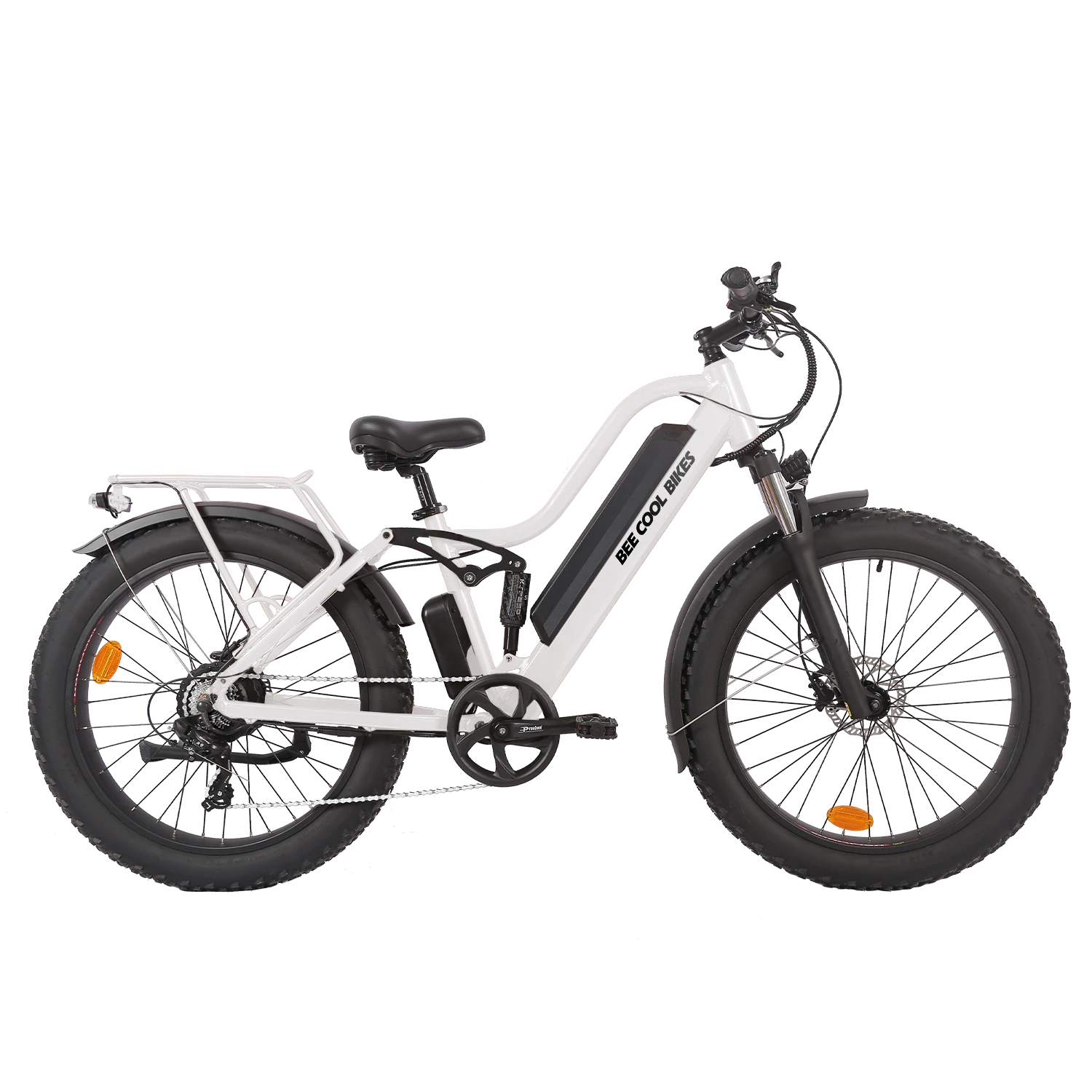

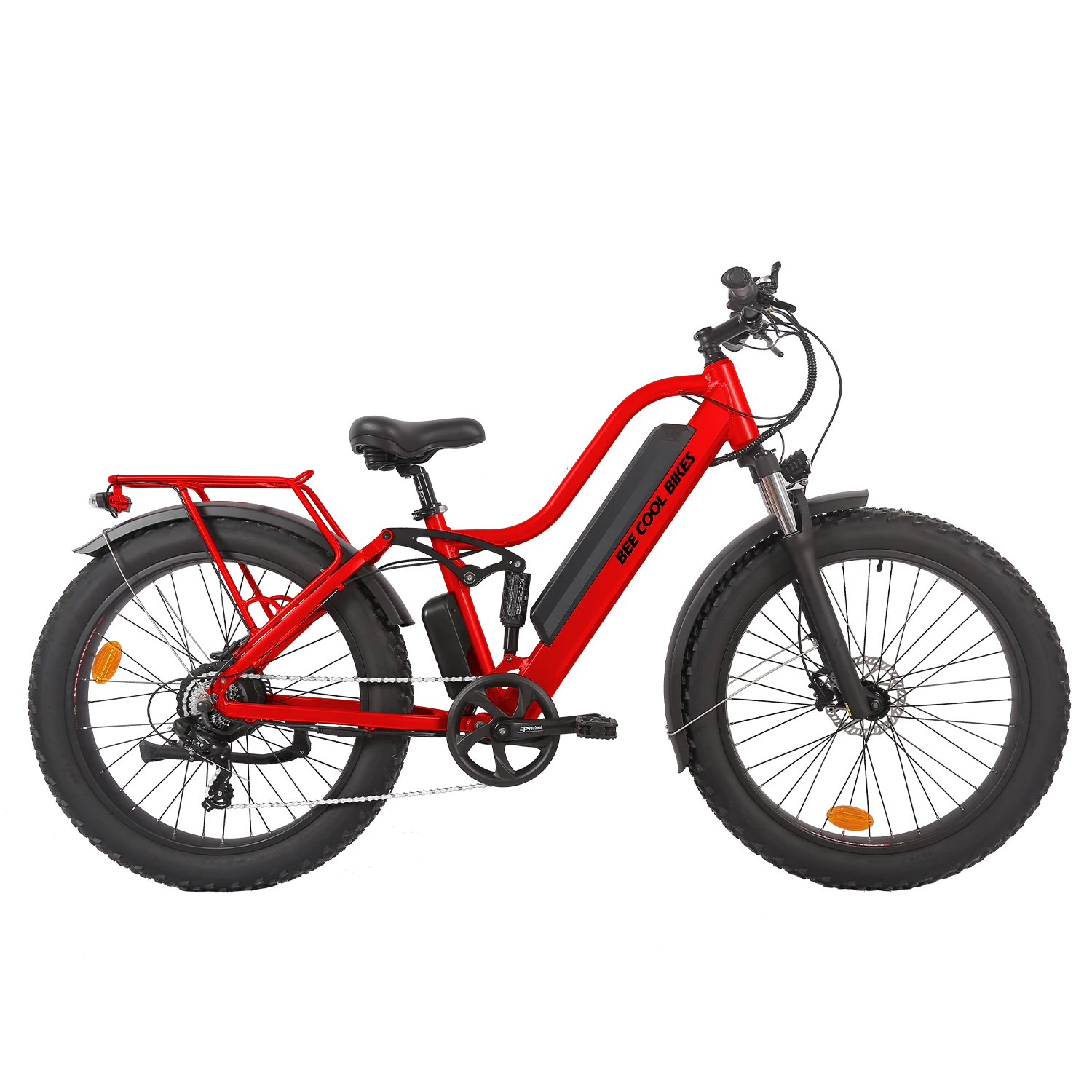


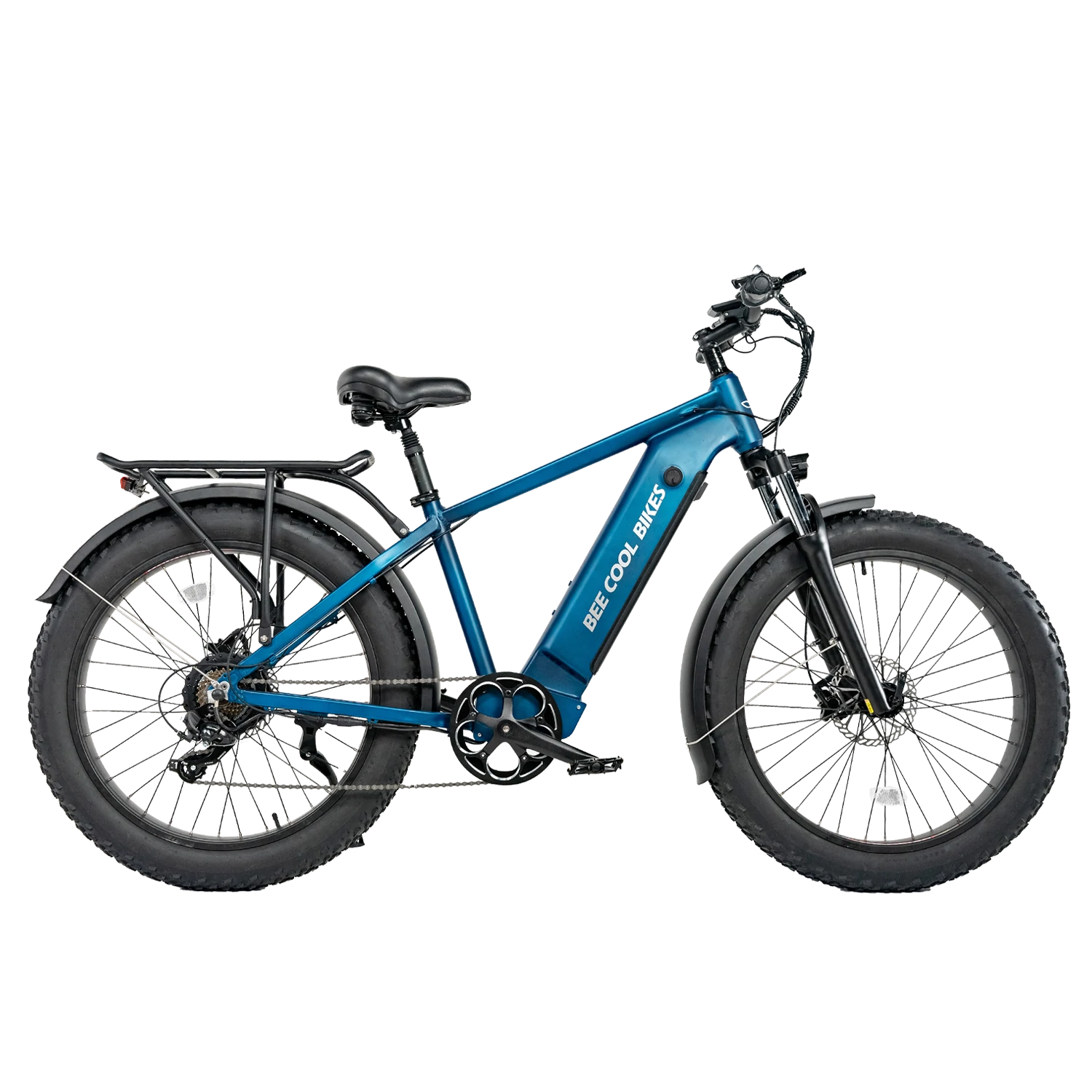
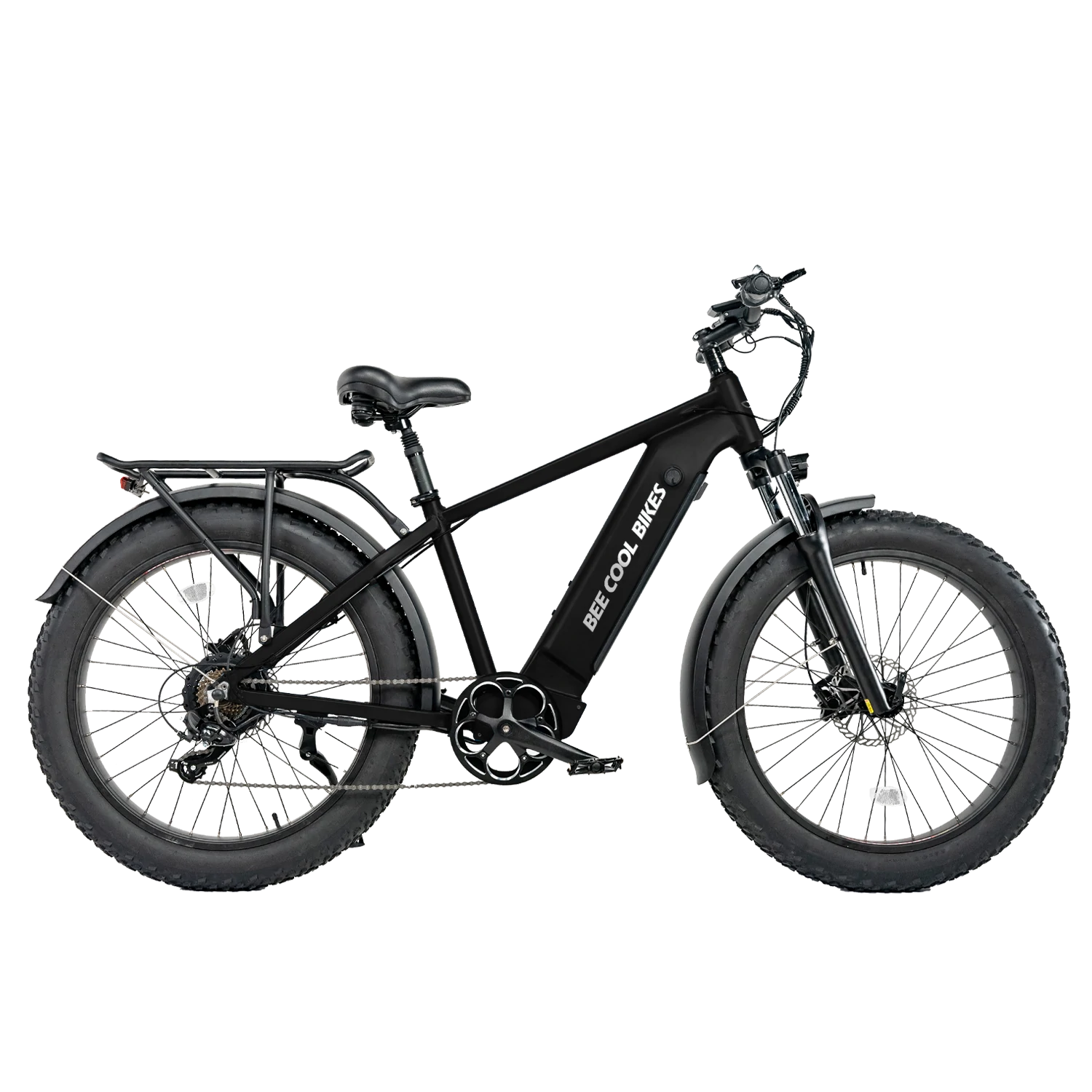
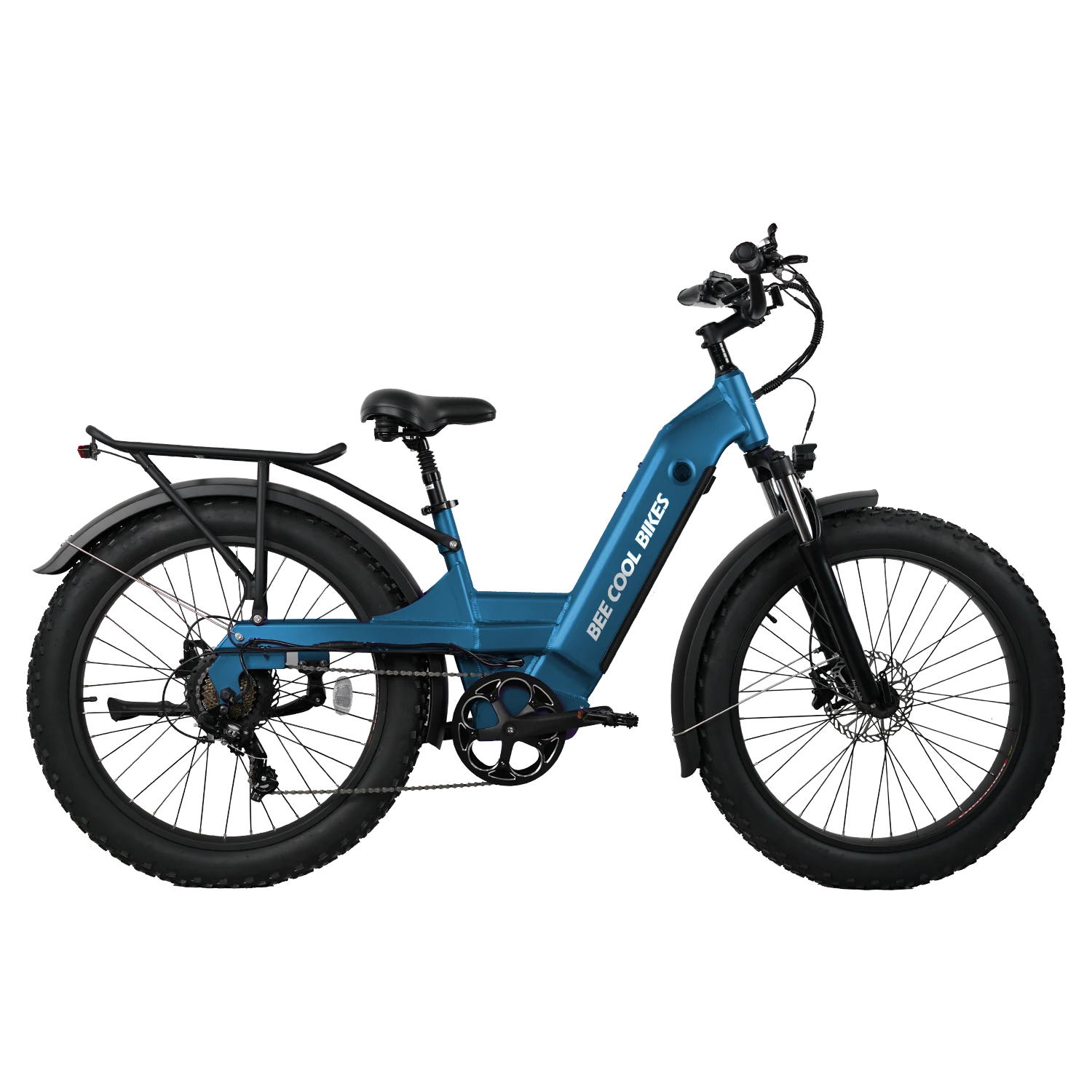
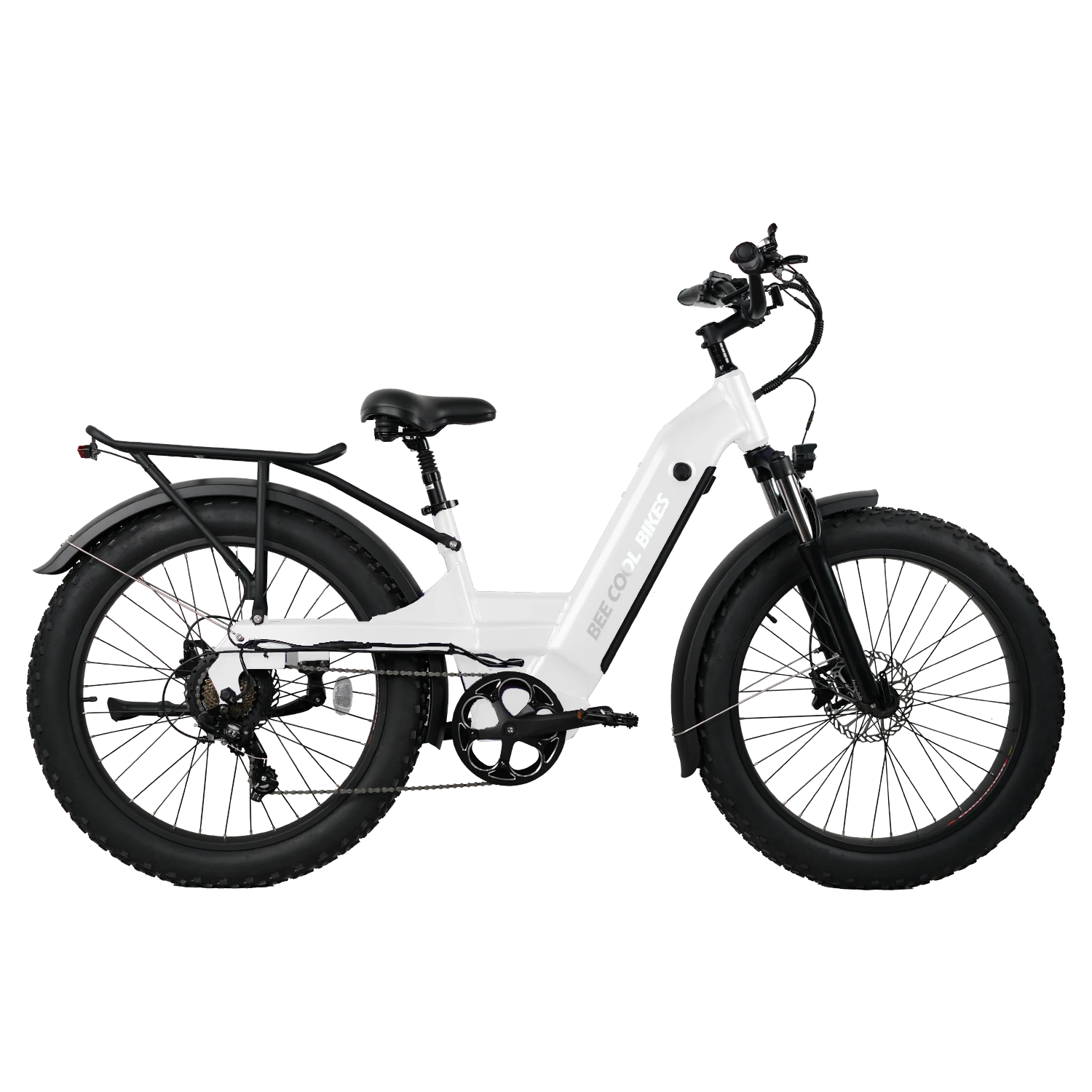
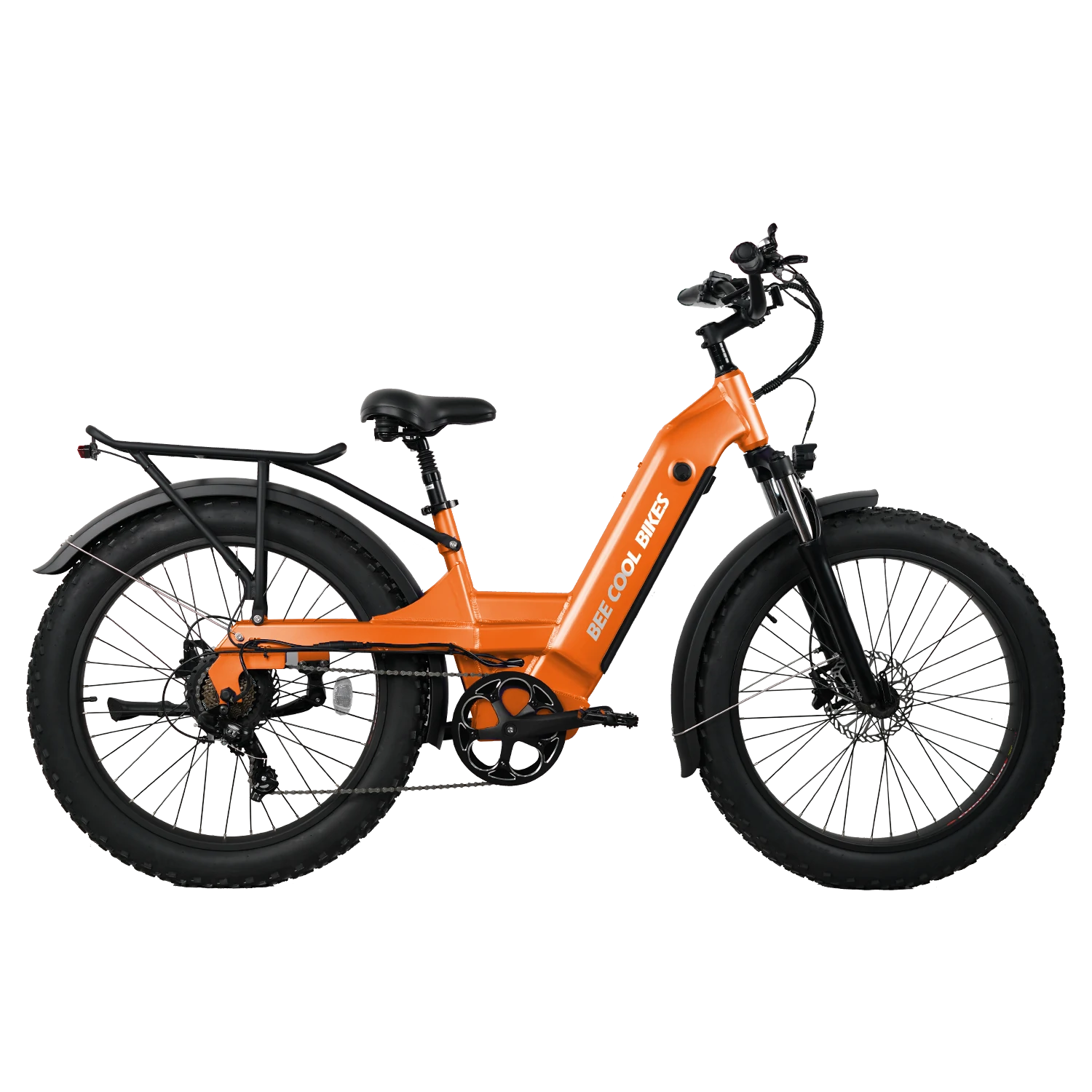
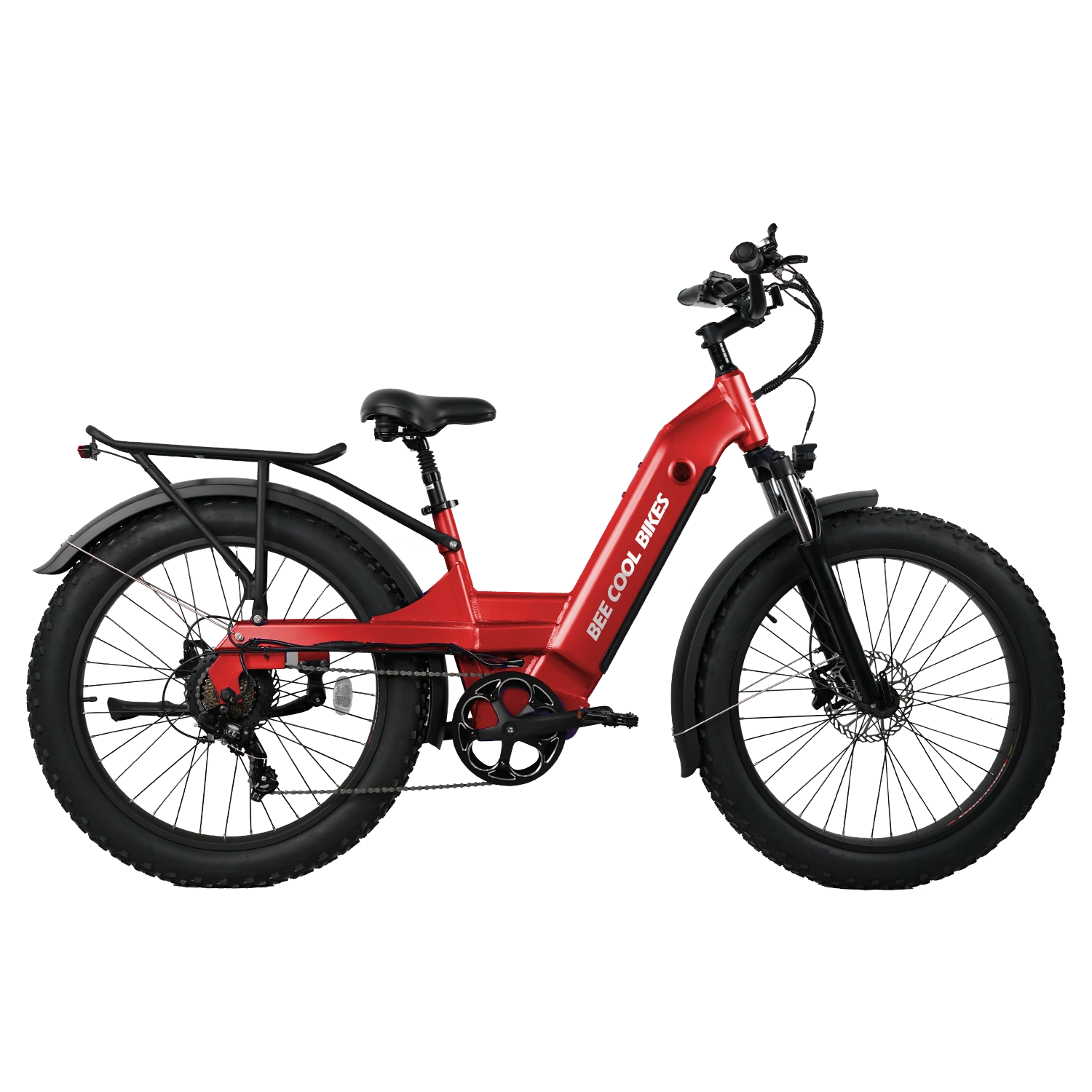
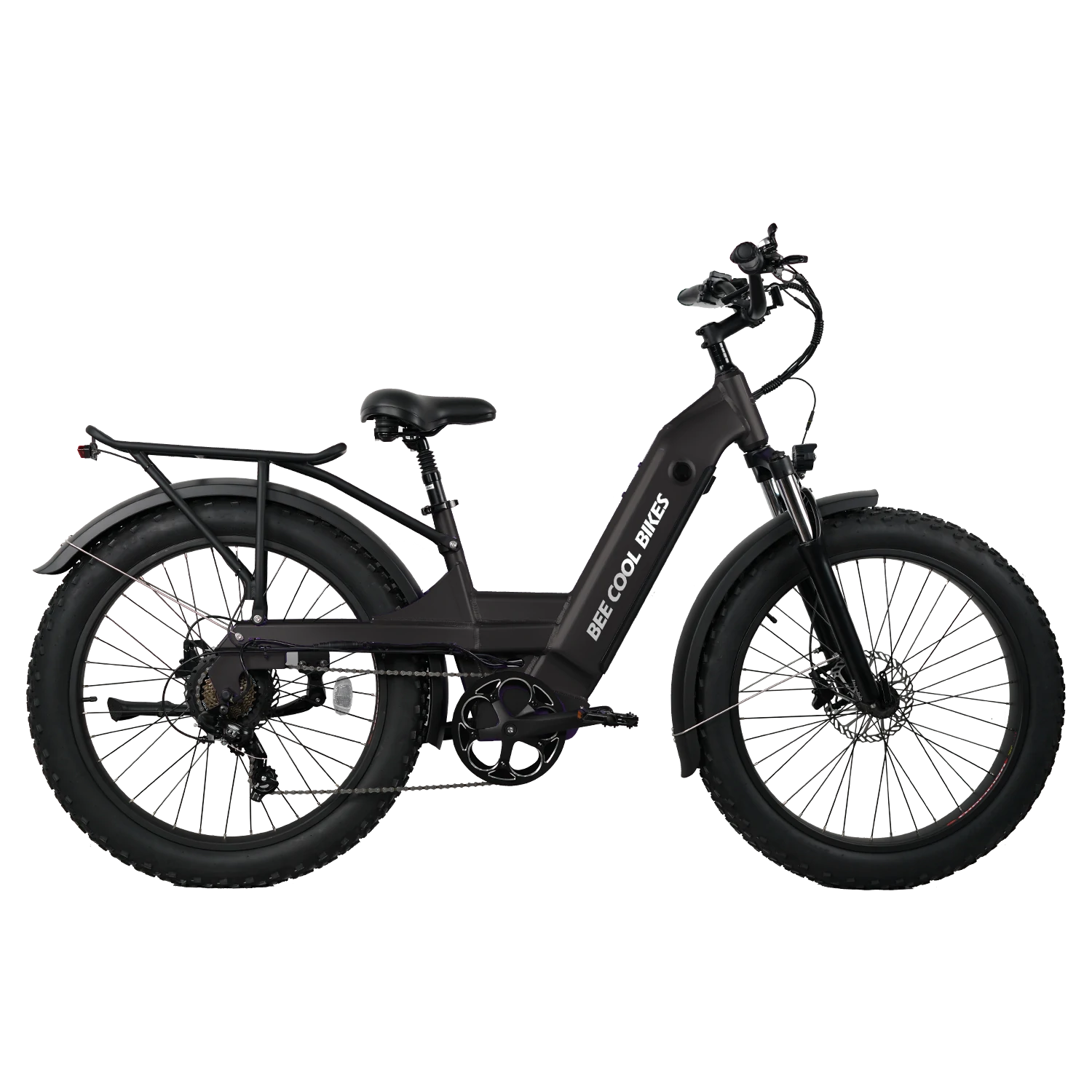
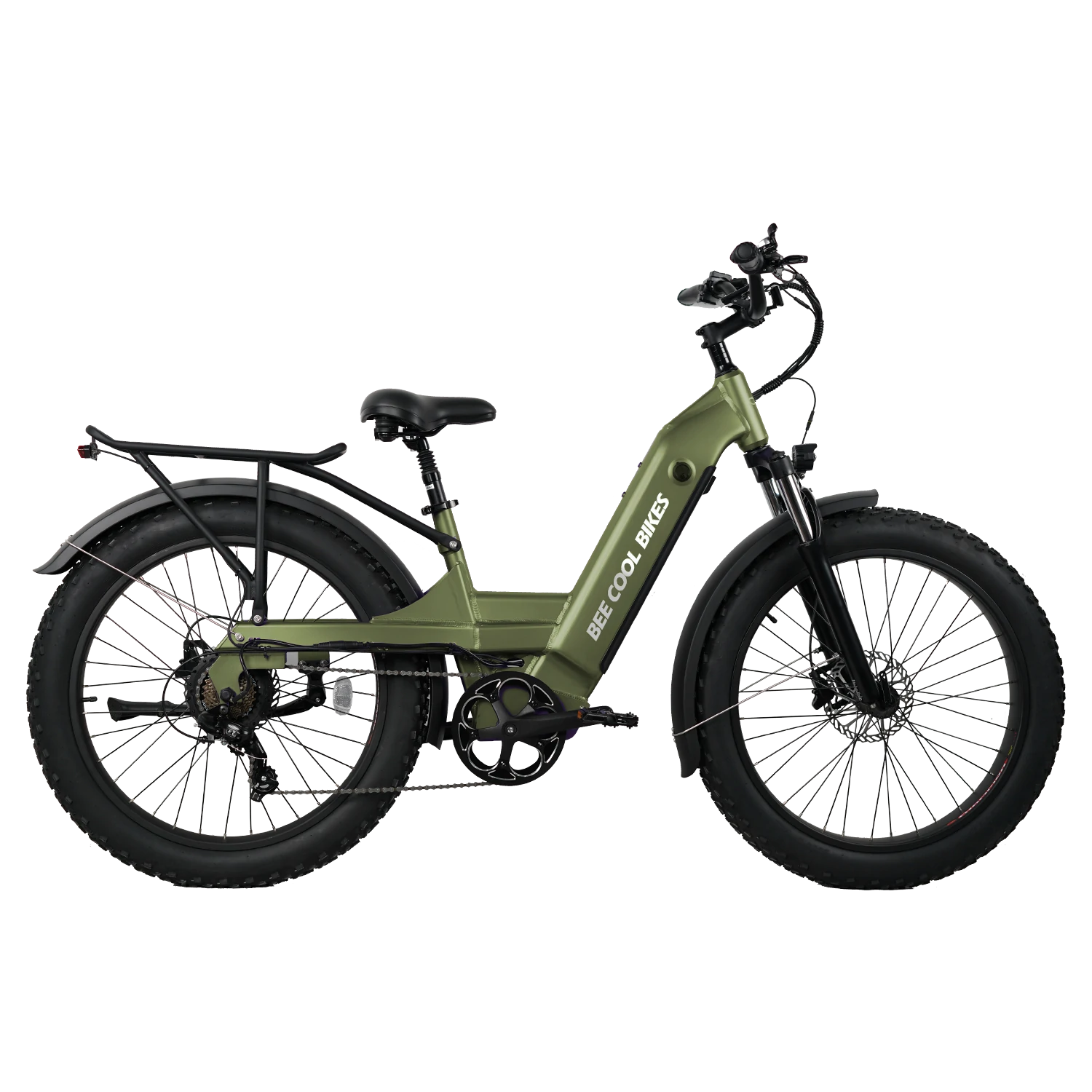
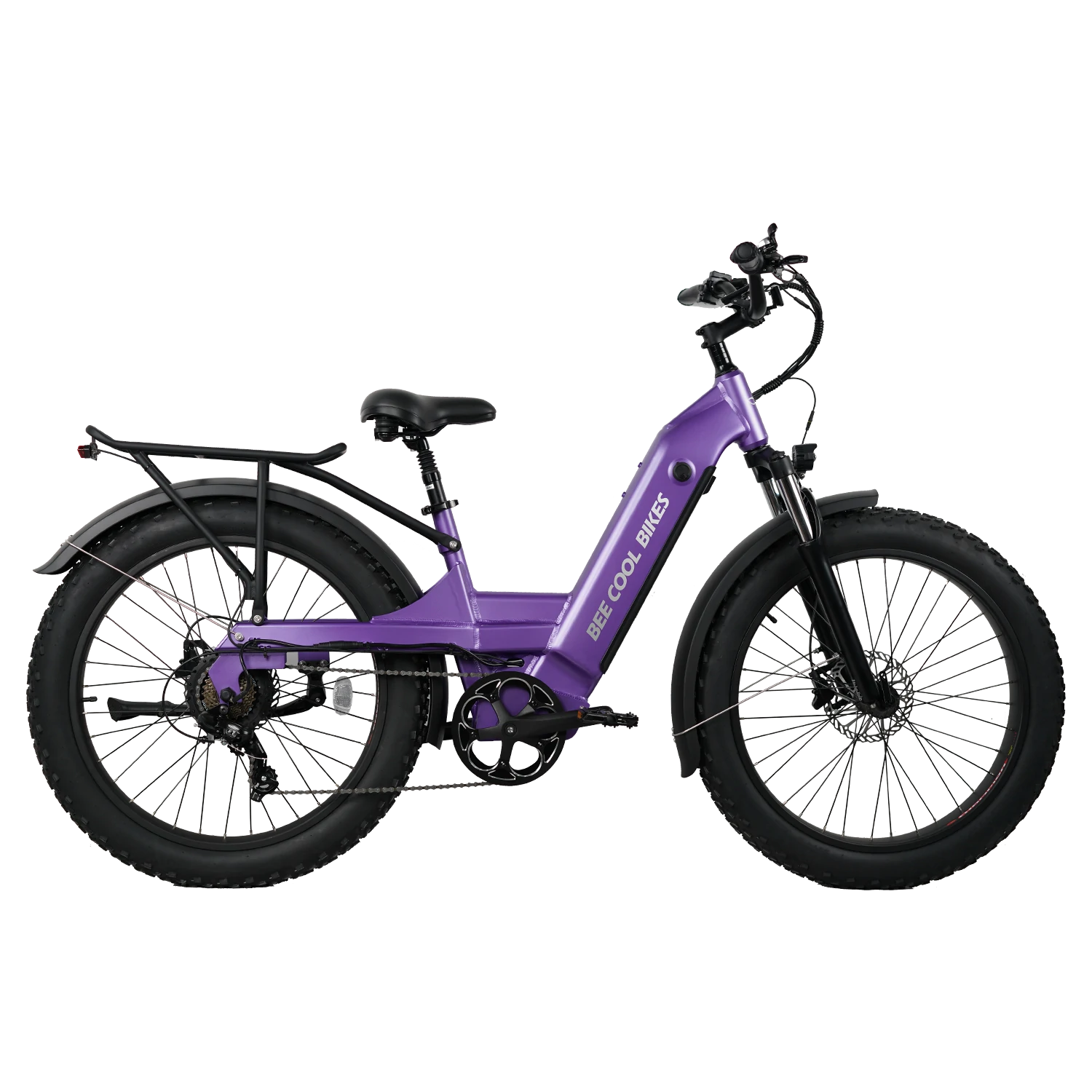

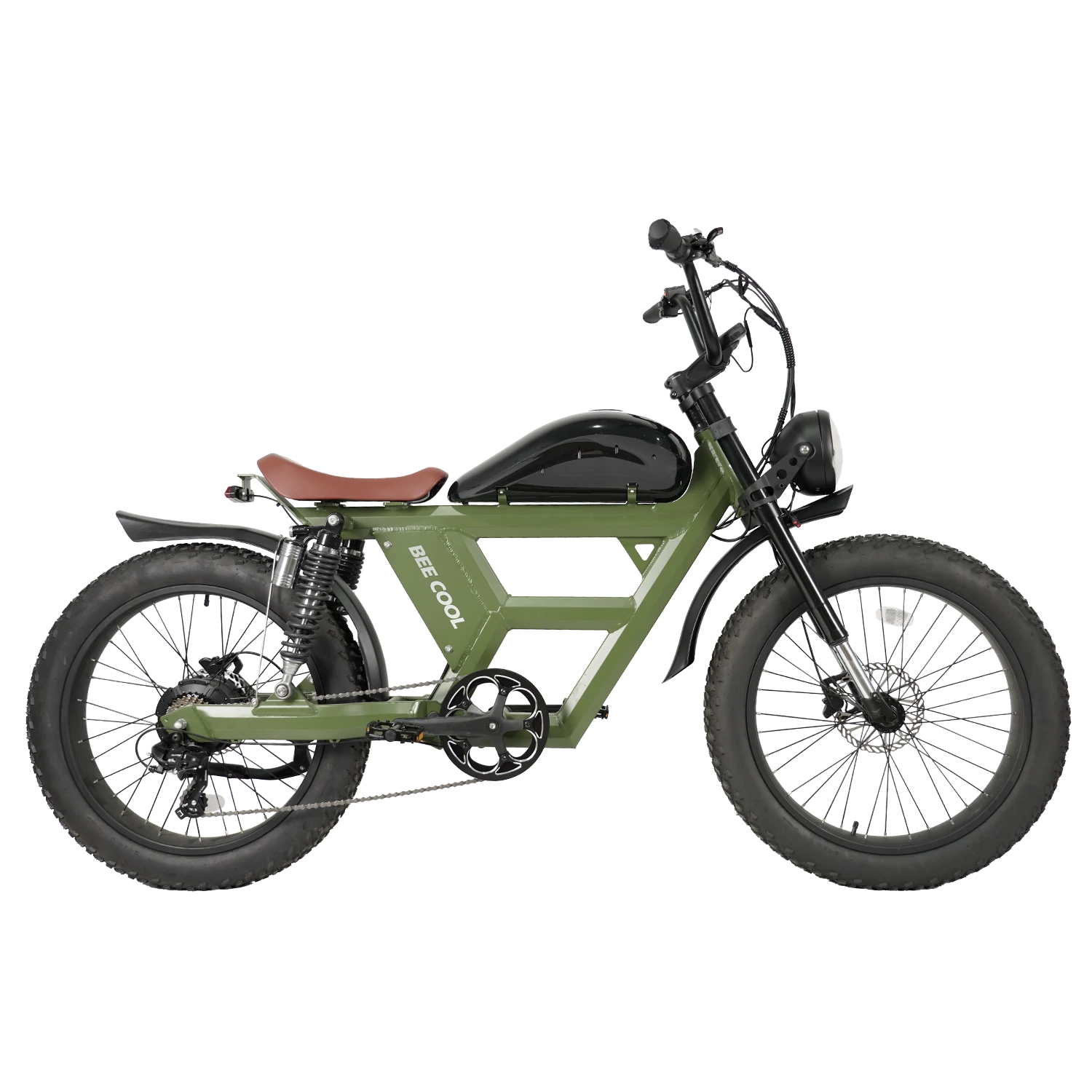
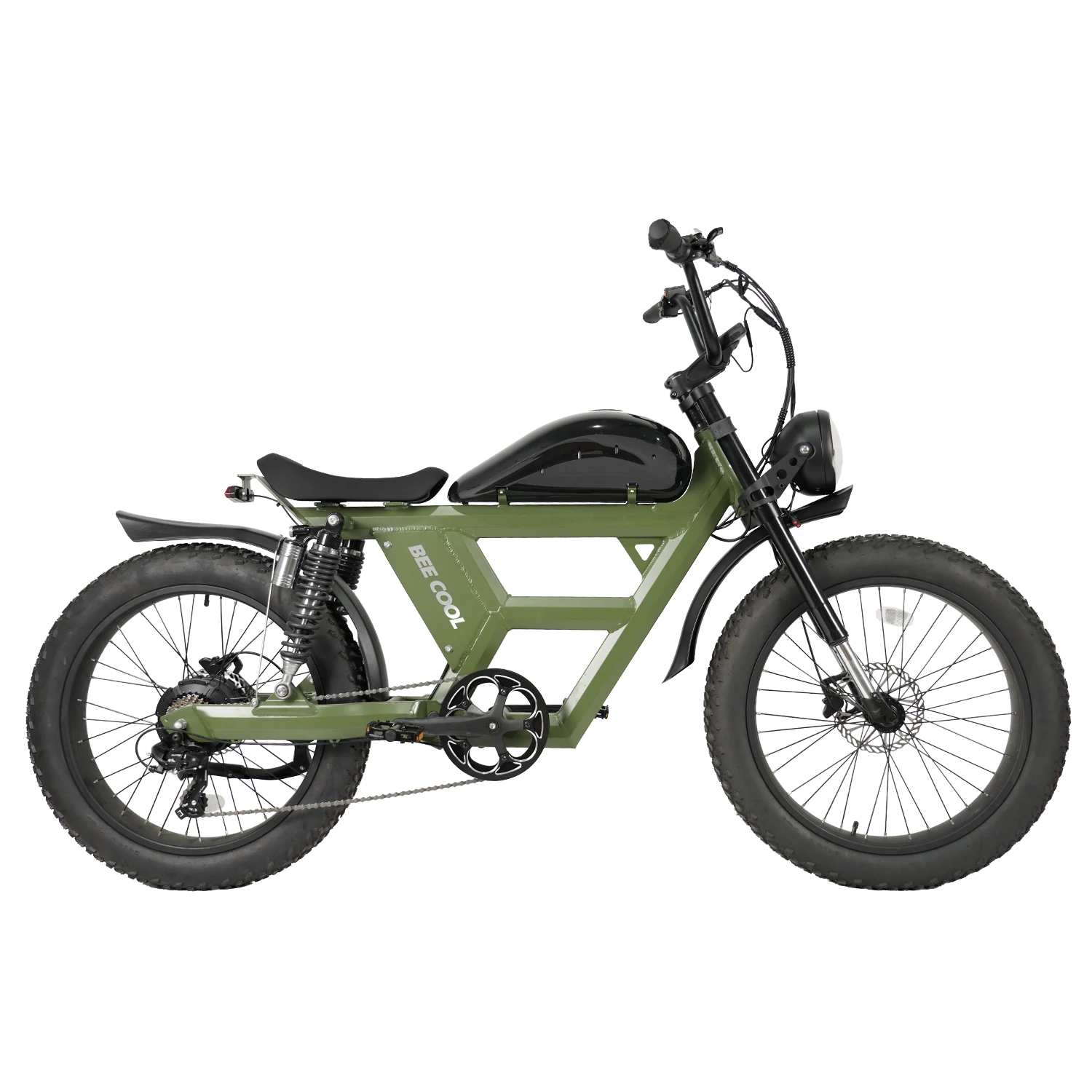
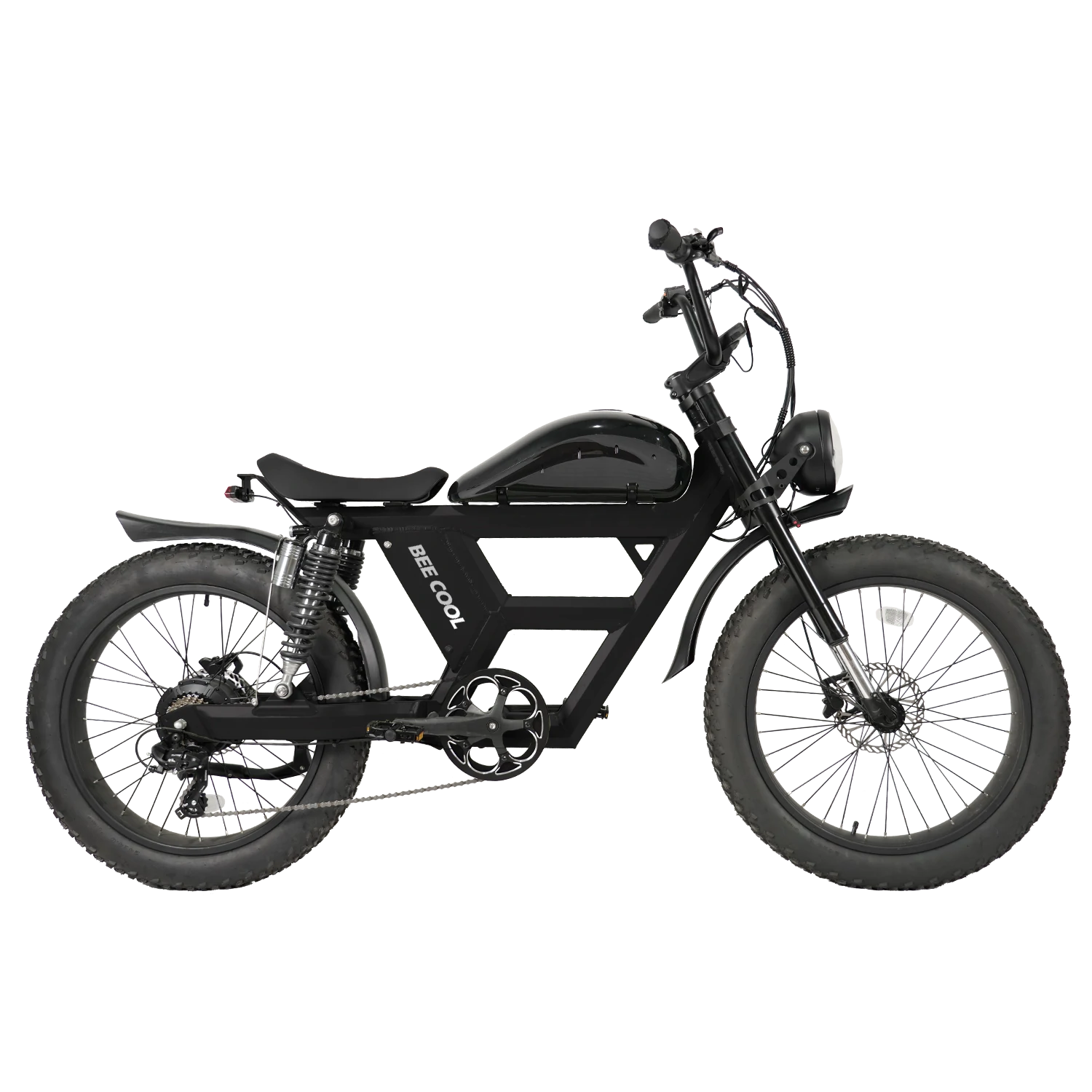
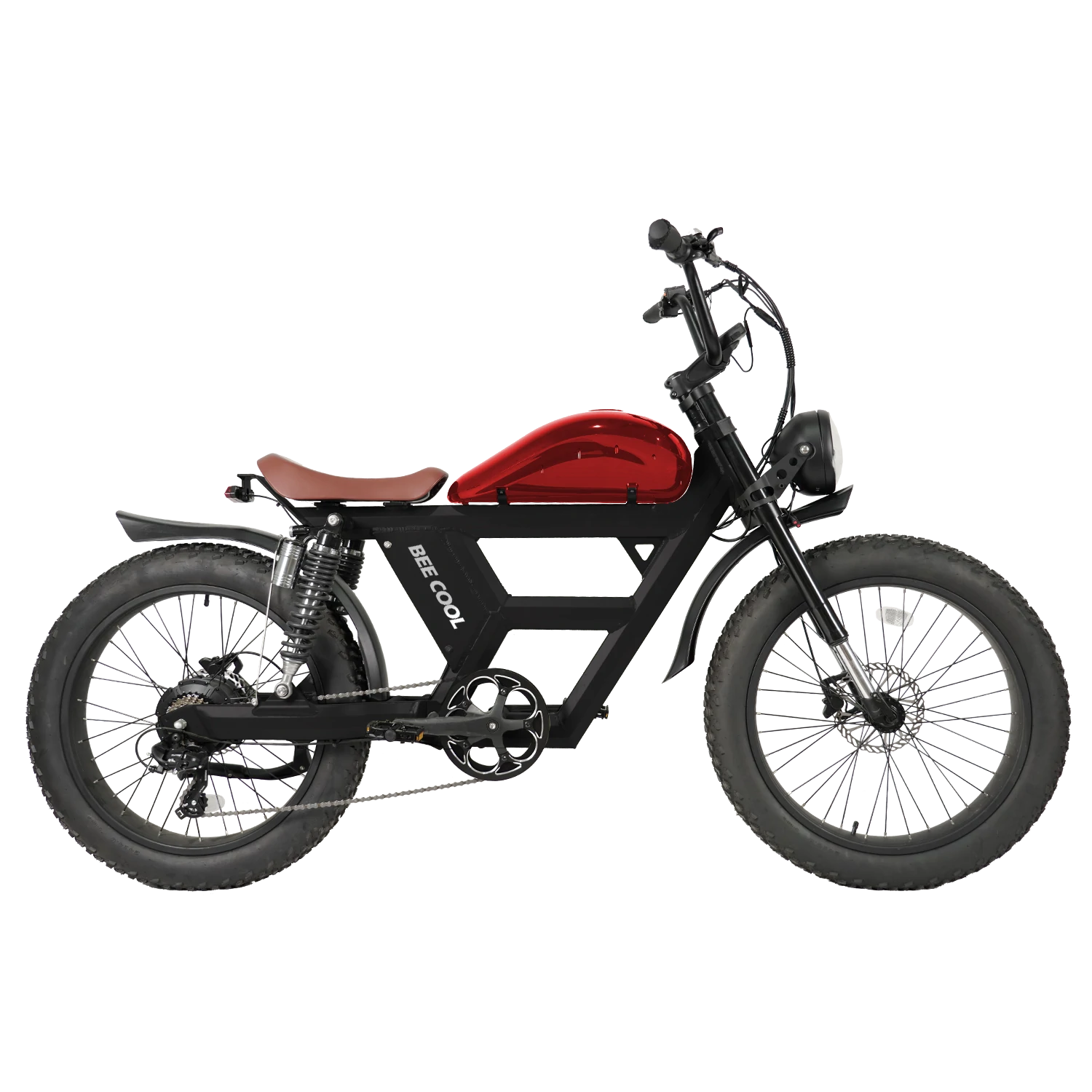











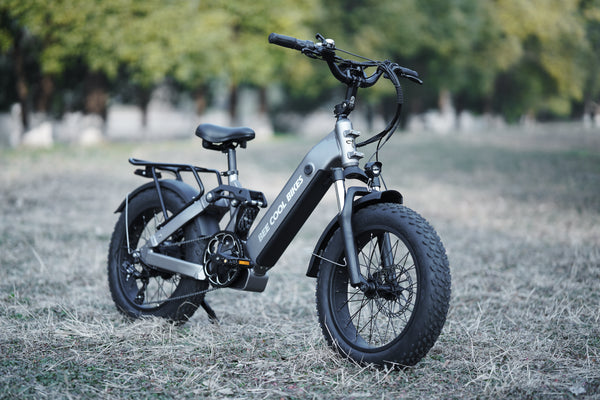
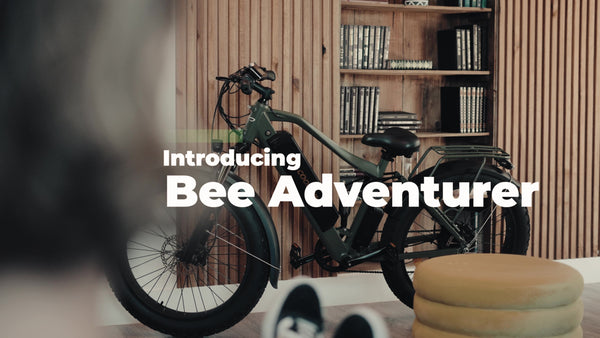
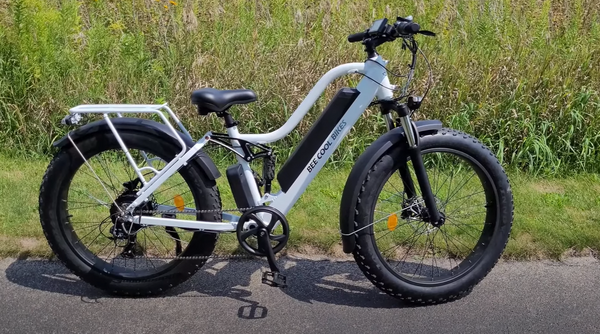
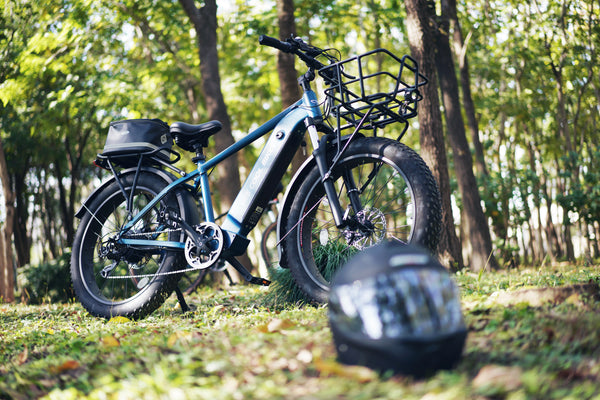
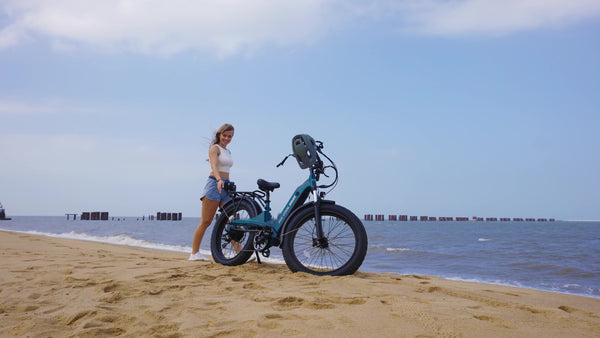
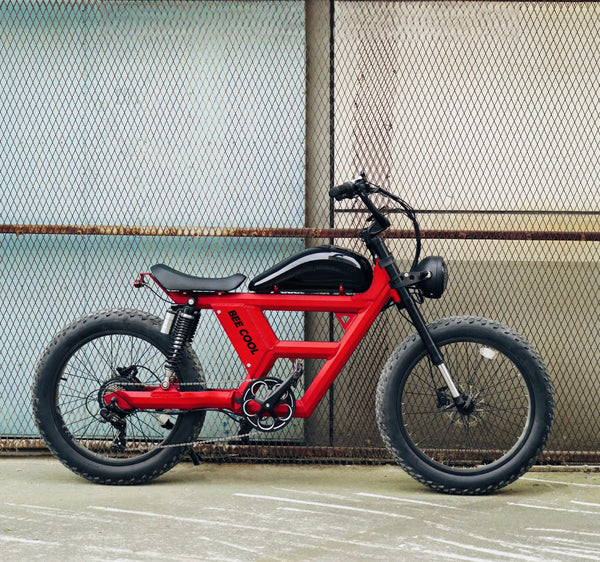










Bee Adventurer
$1,199.00$1,699.00
Bee Pathfinder Step-Thru
$1,199.00$1,999.00
Ebike Advanced Stem Suspension
$99.00
Foldable Ebike Cargo Trailer
$259.00$299.00
Front Mounted Basket for Bee Adventurer & Explorer
$89.00$109.00